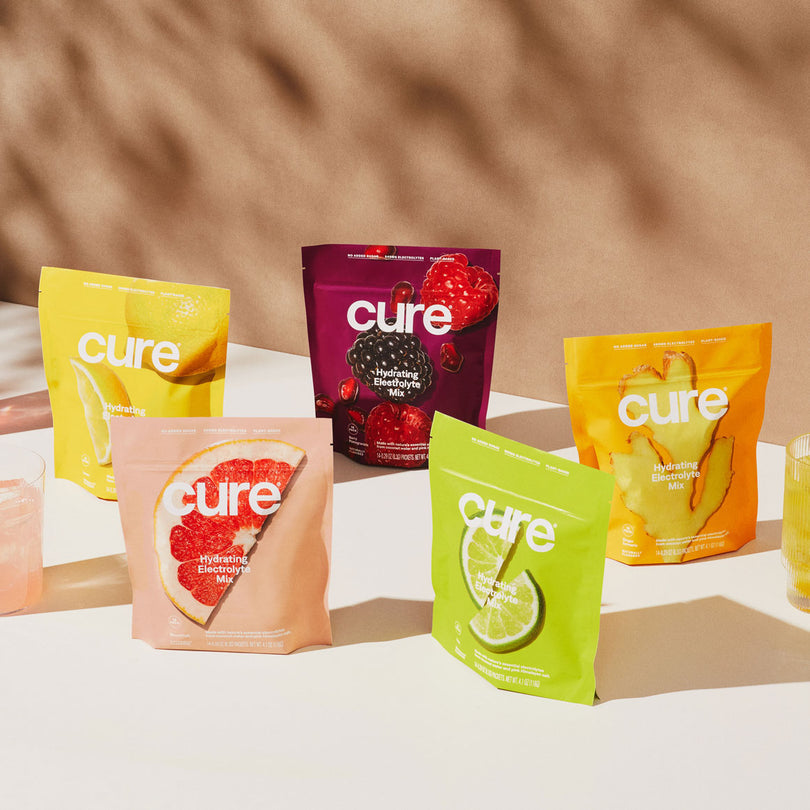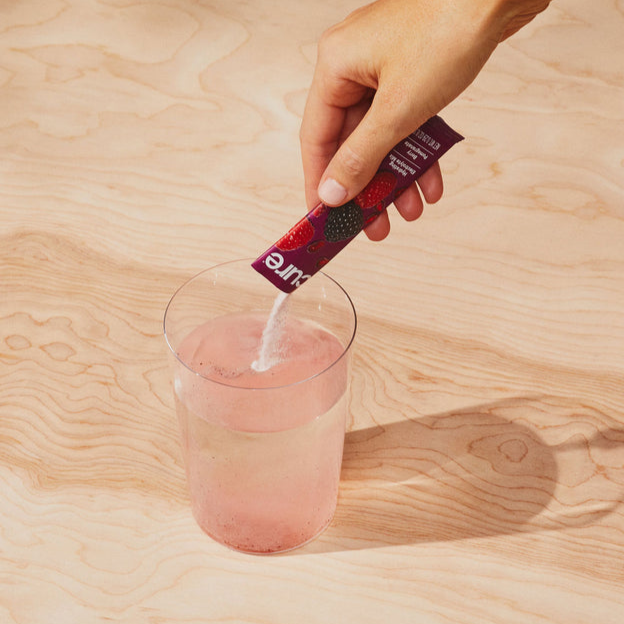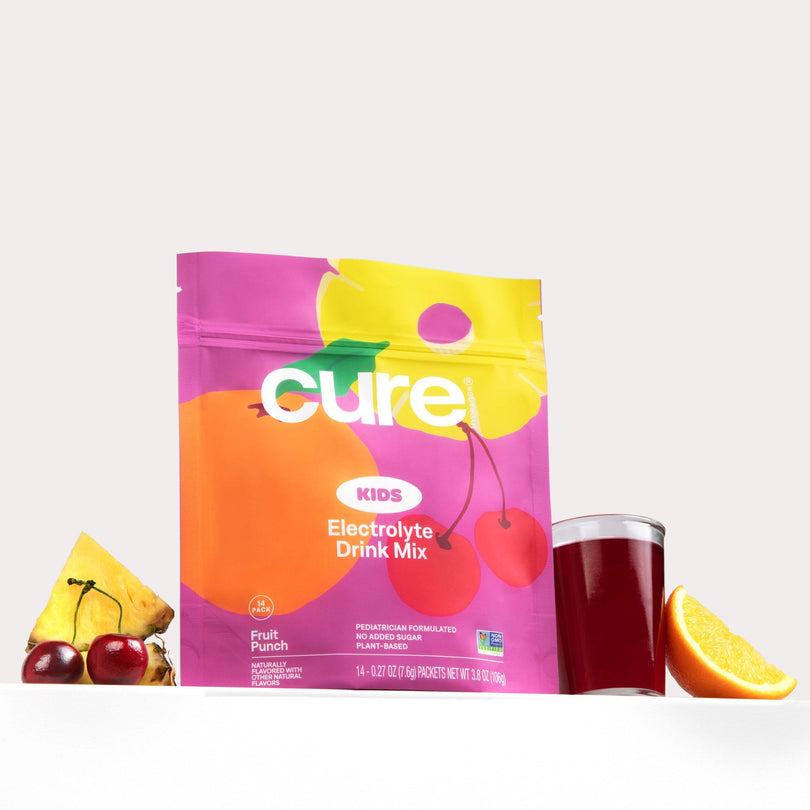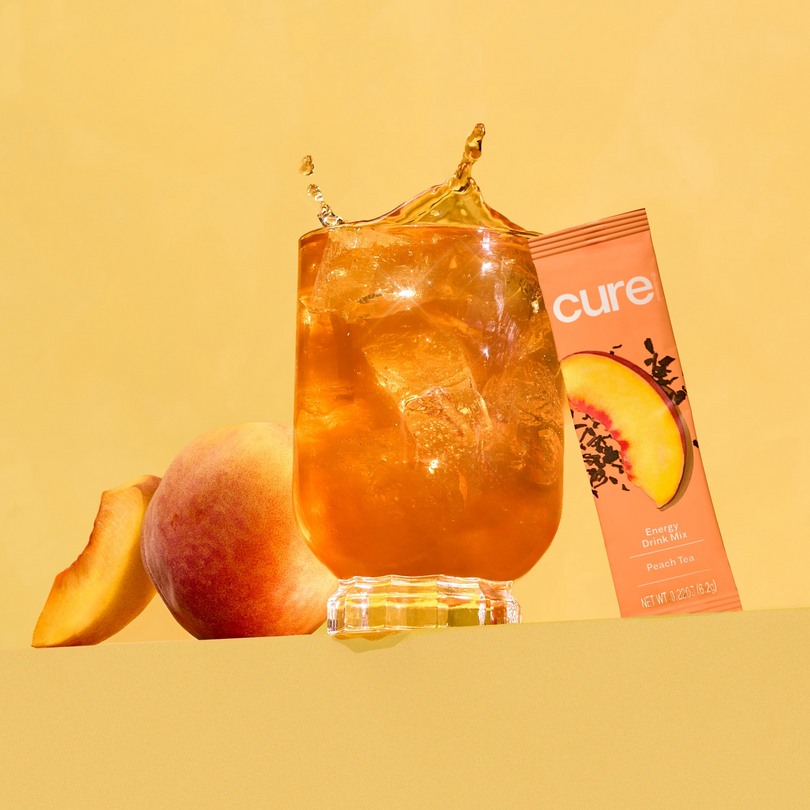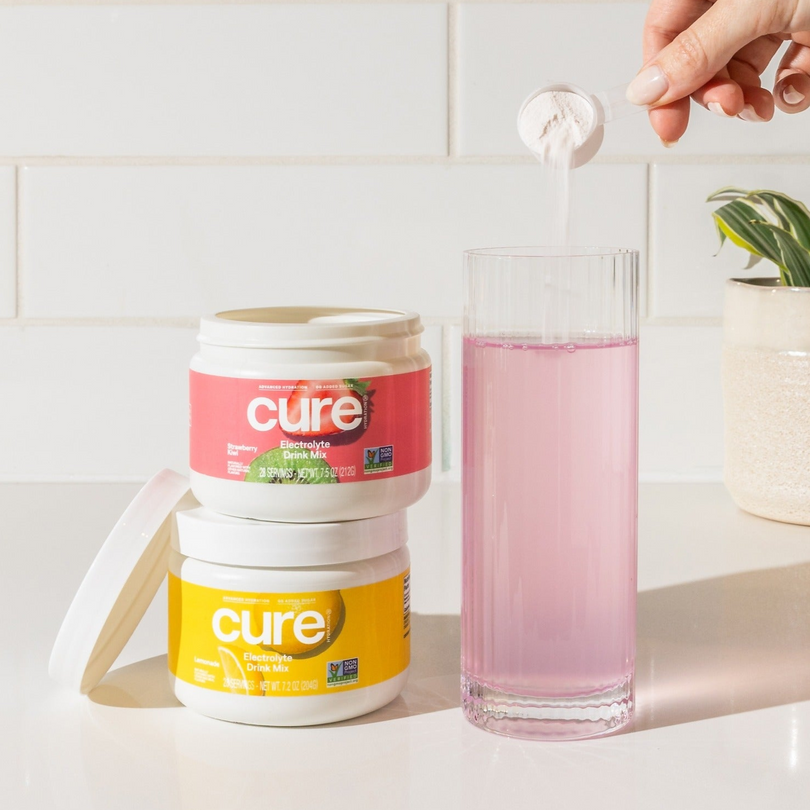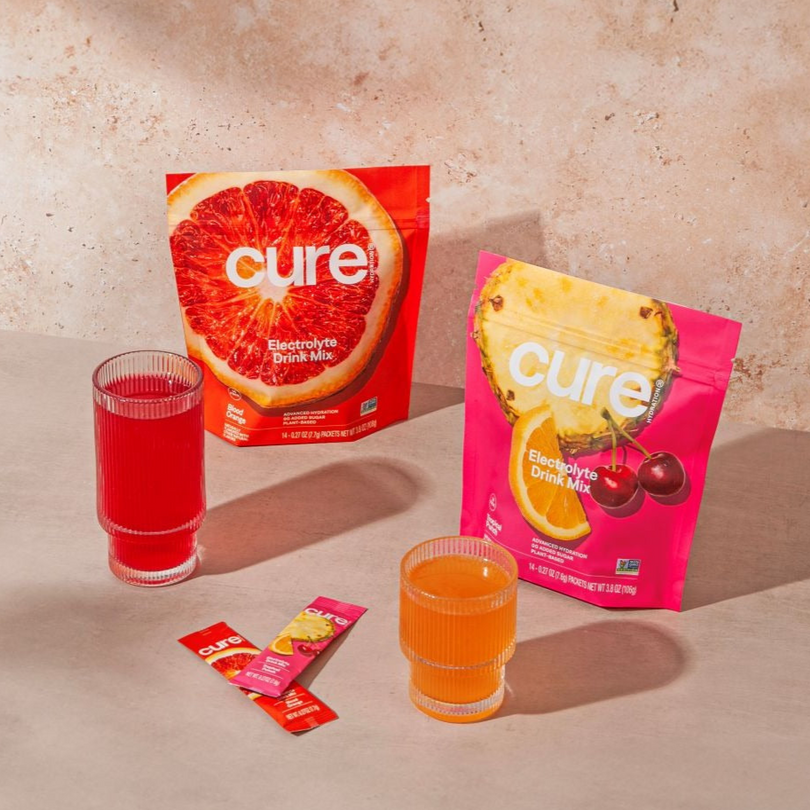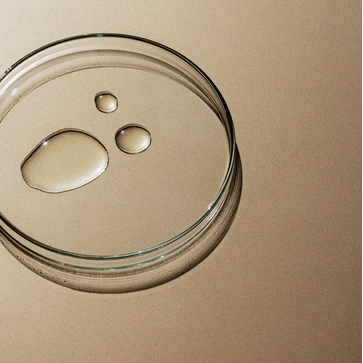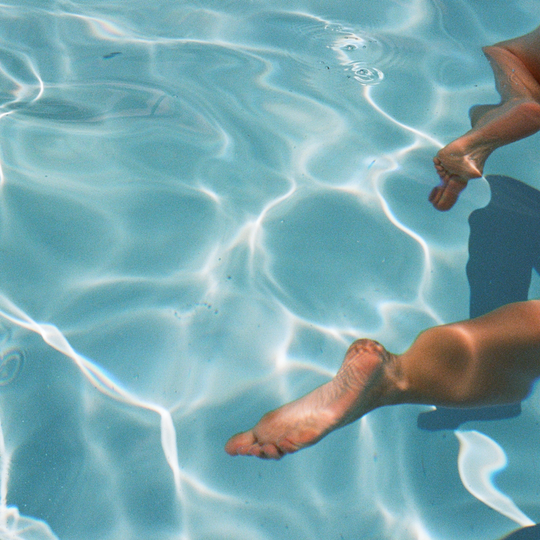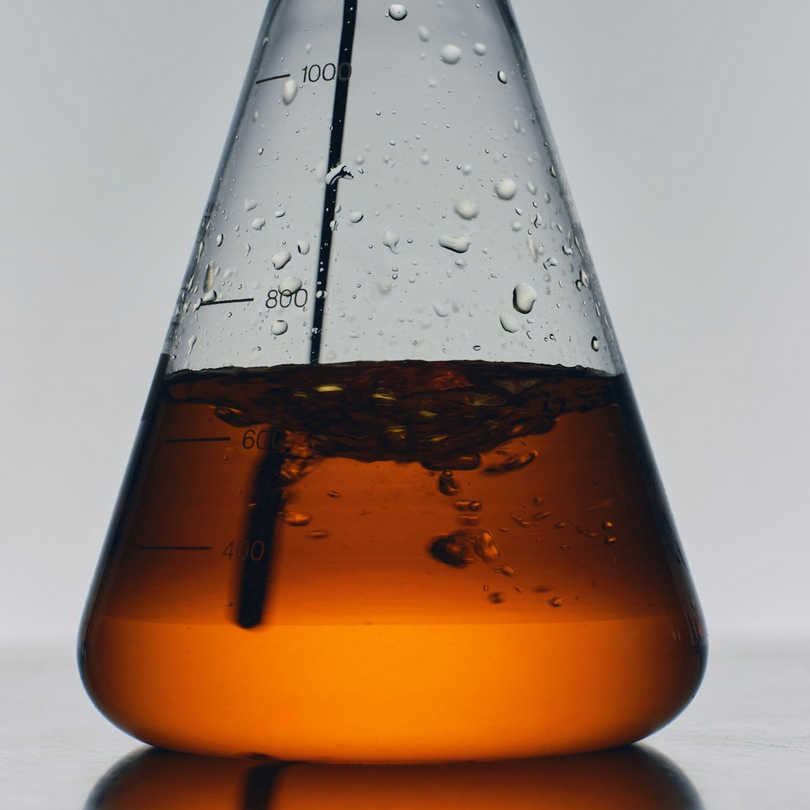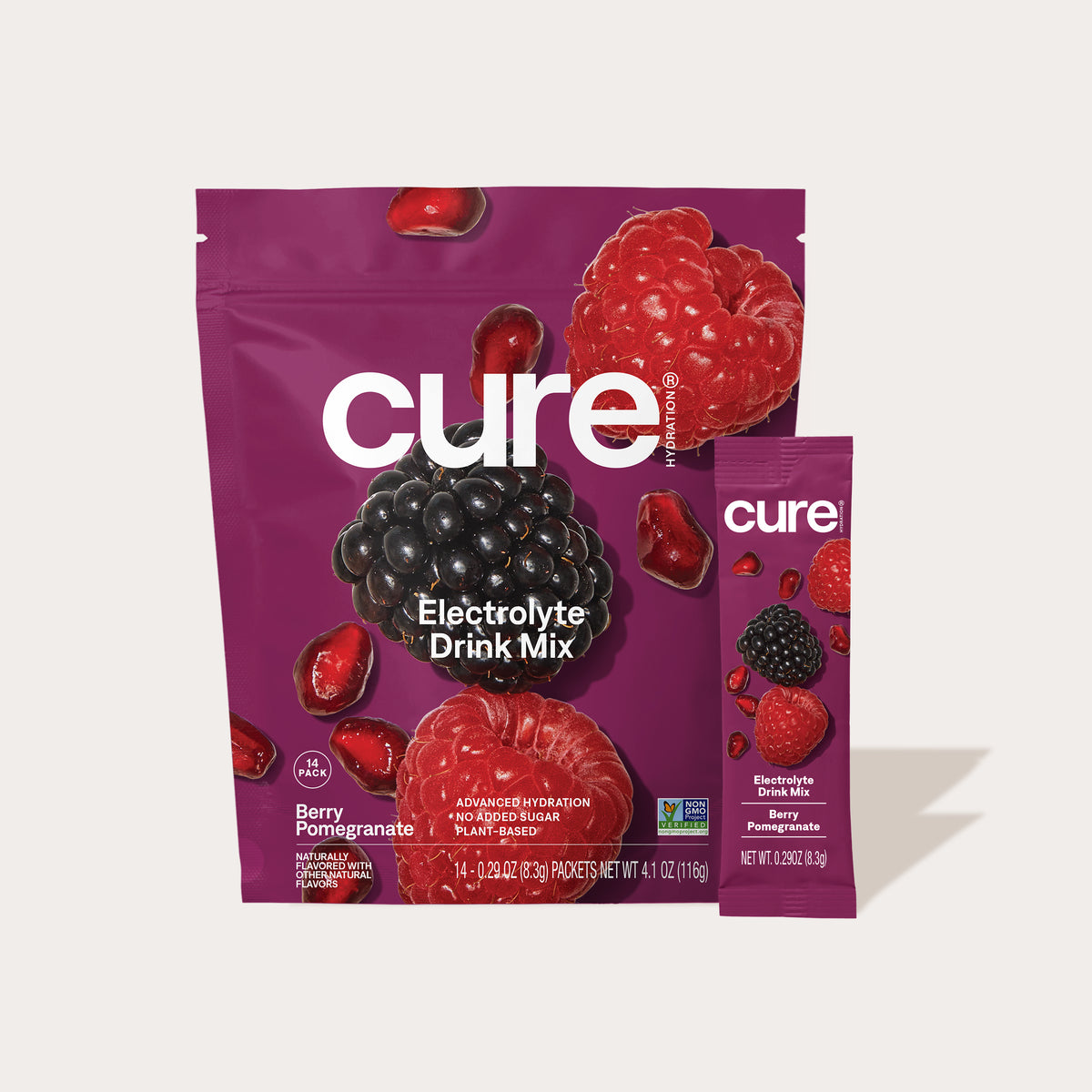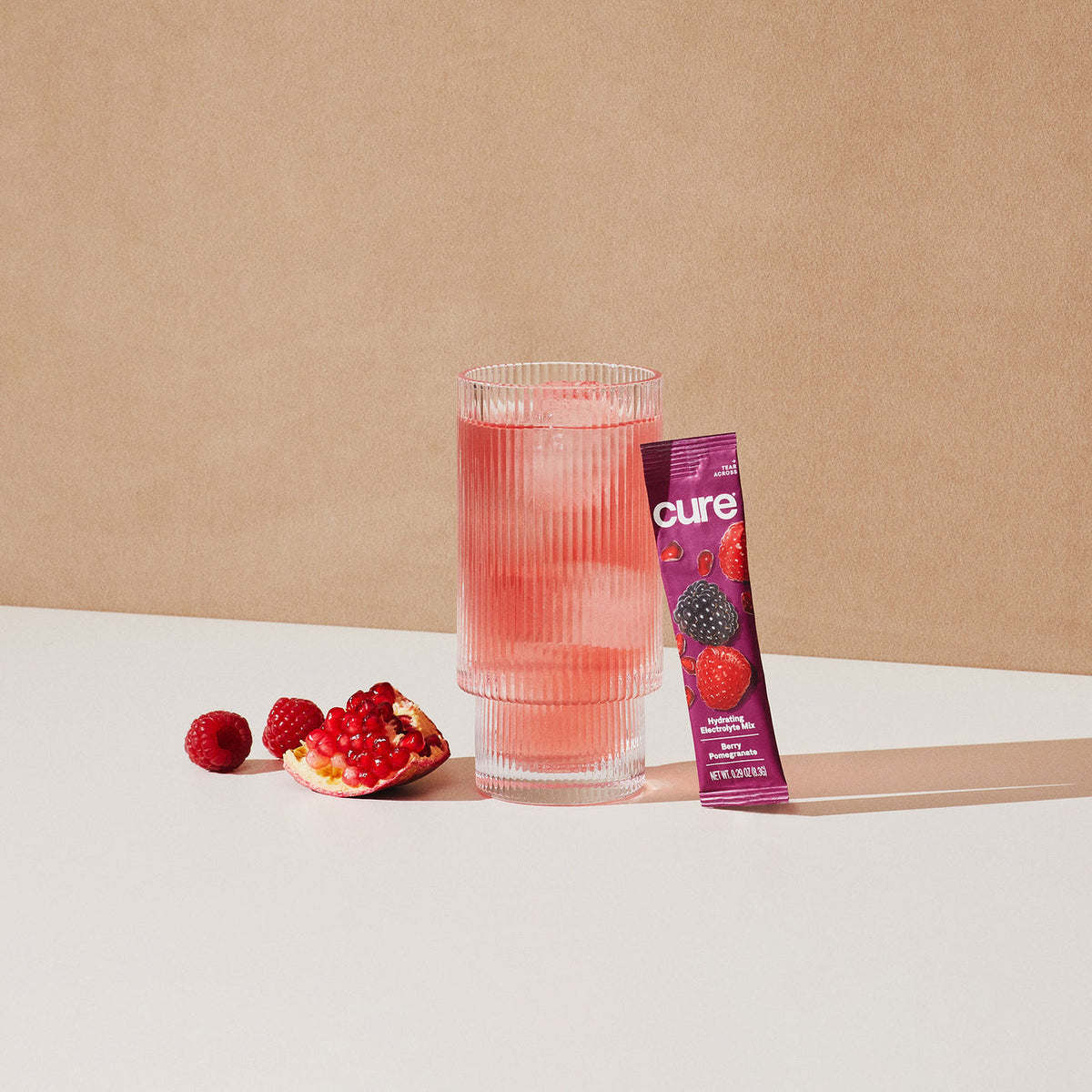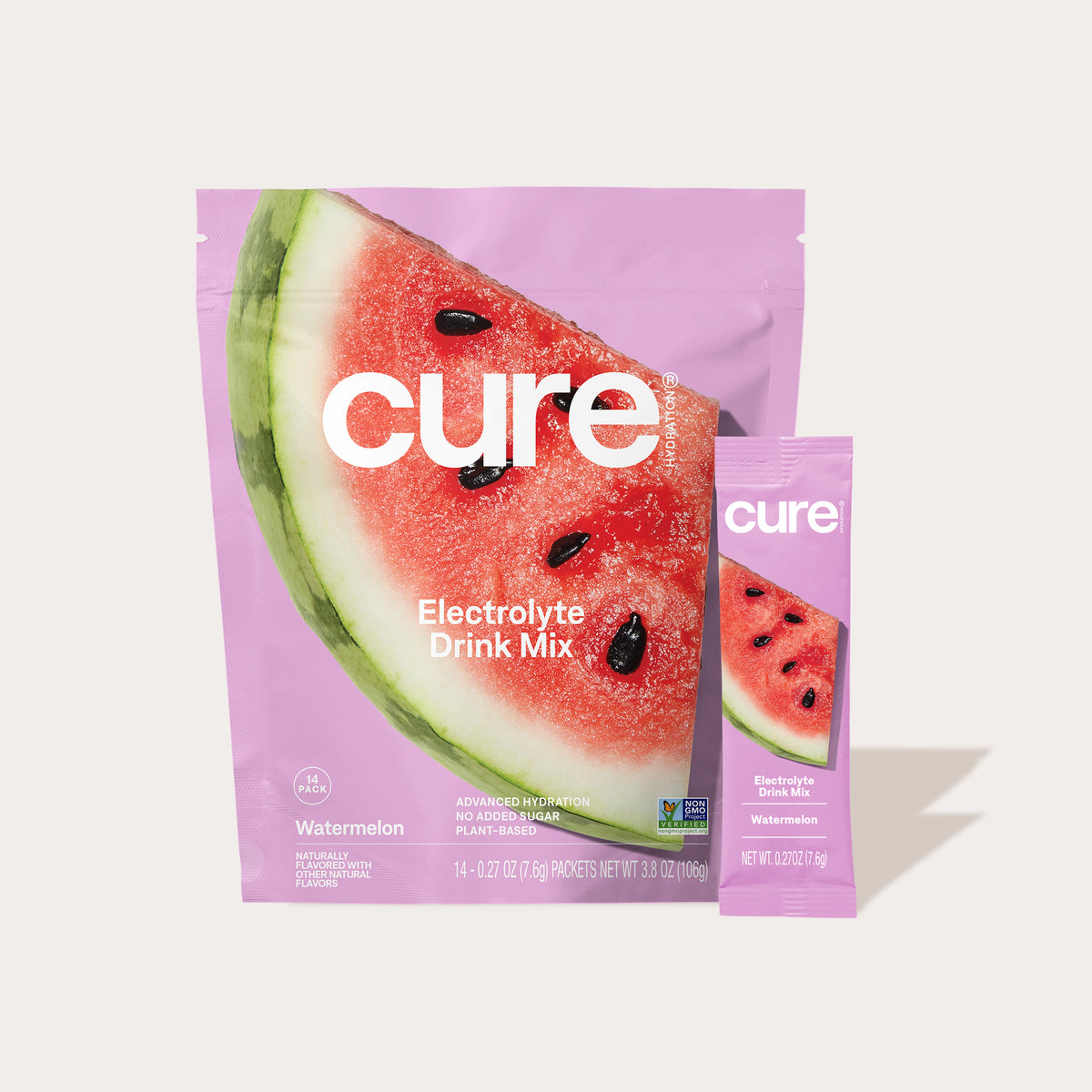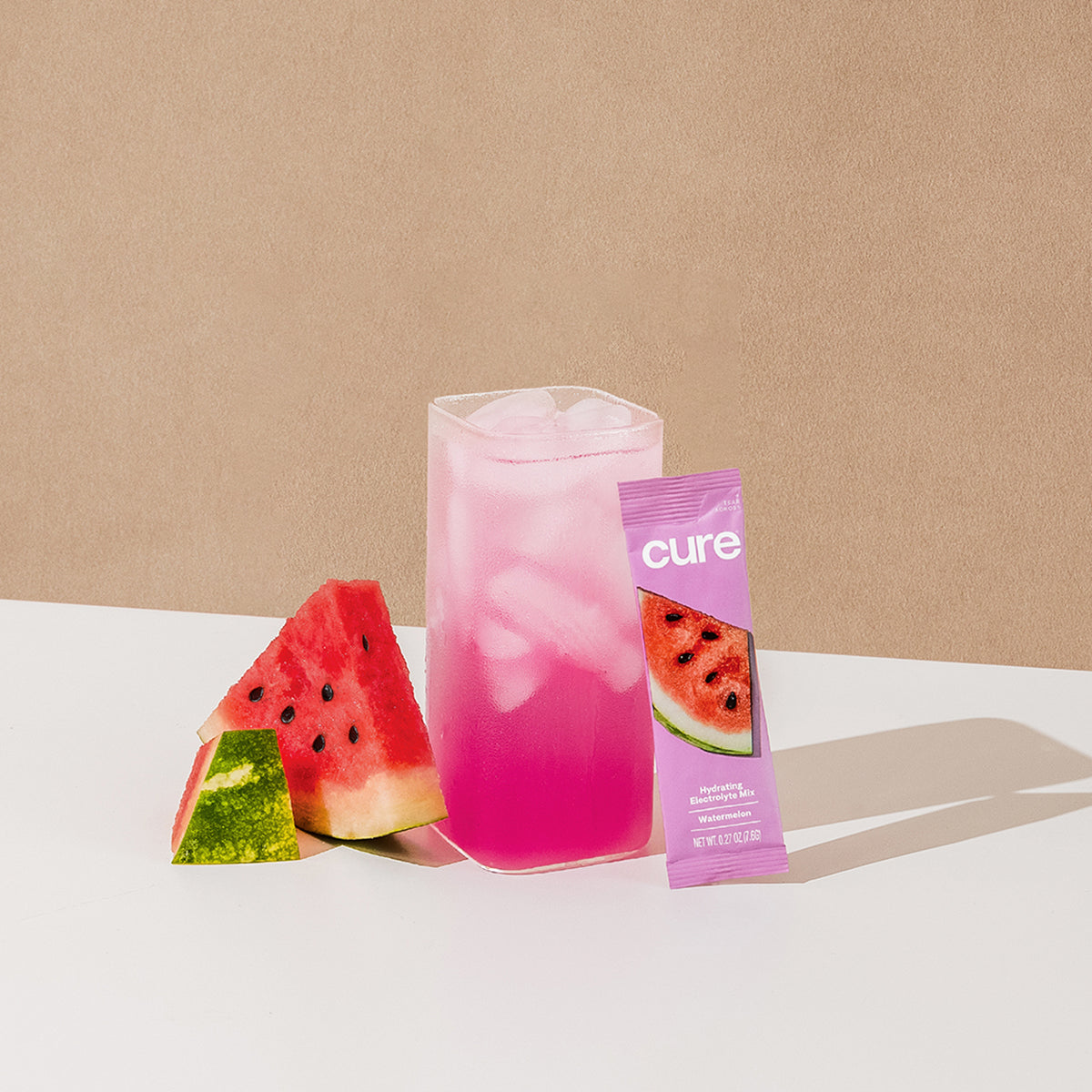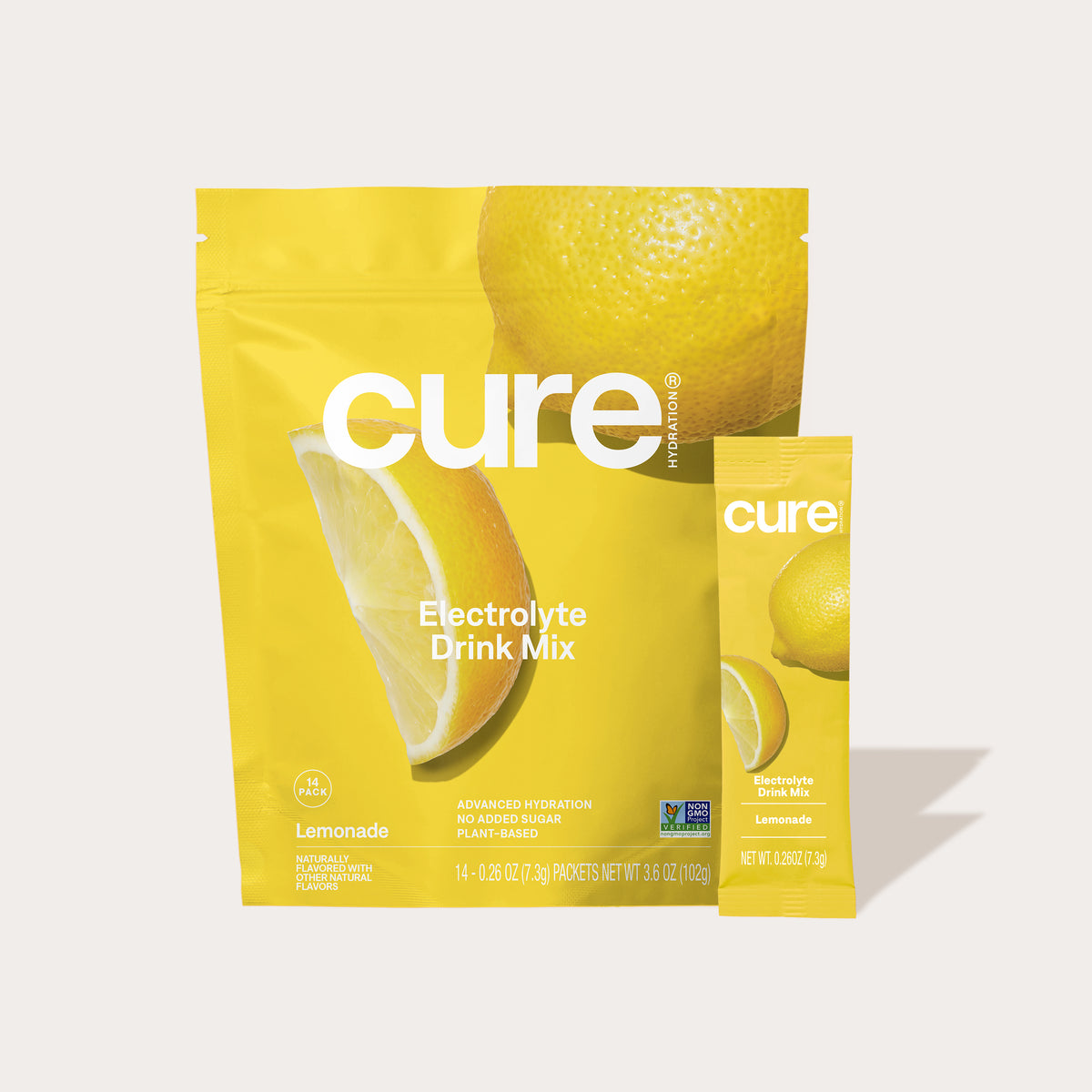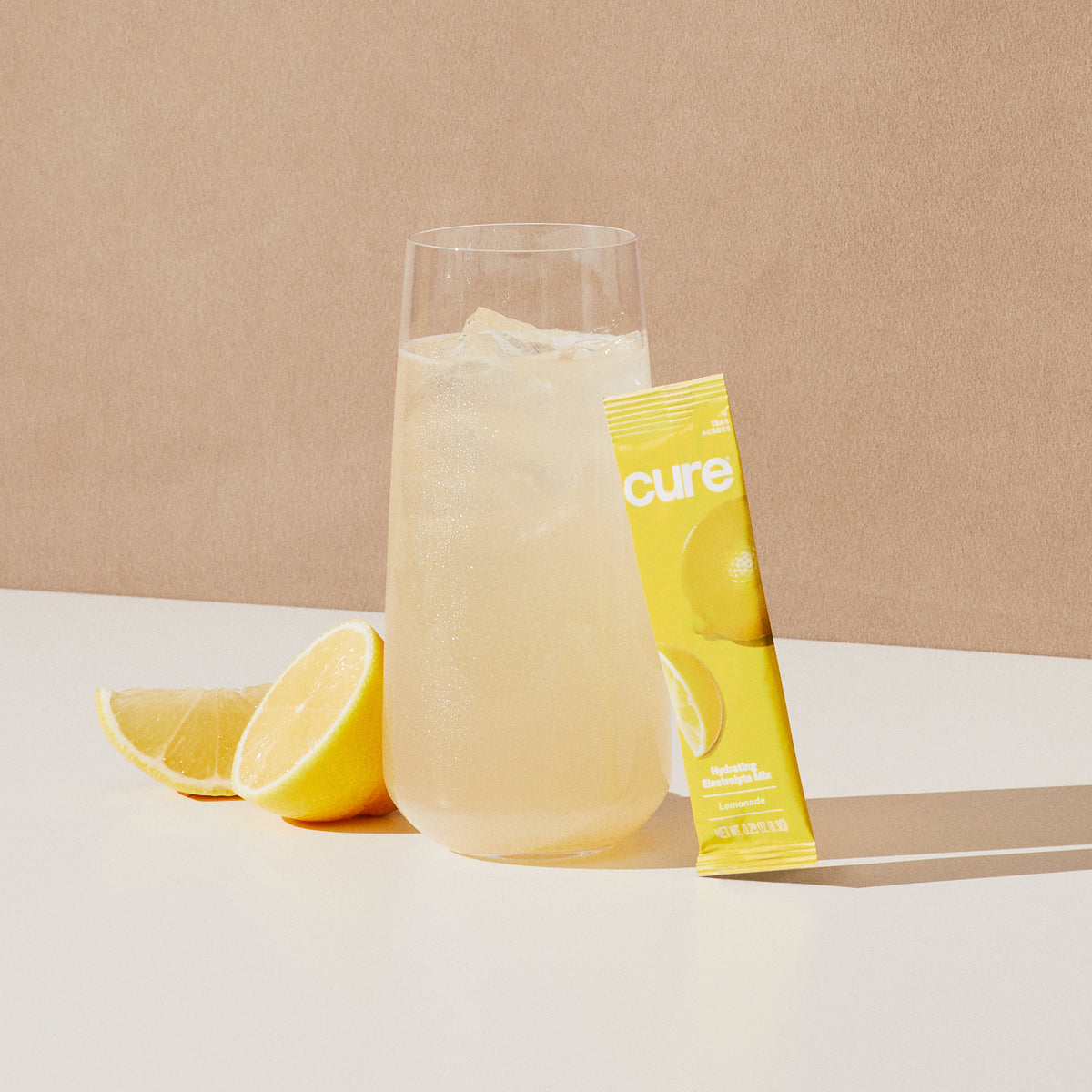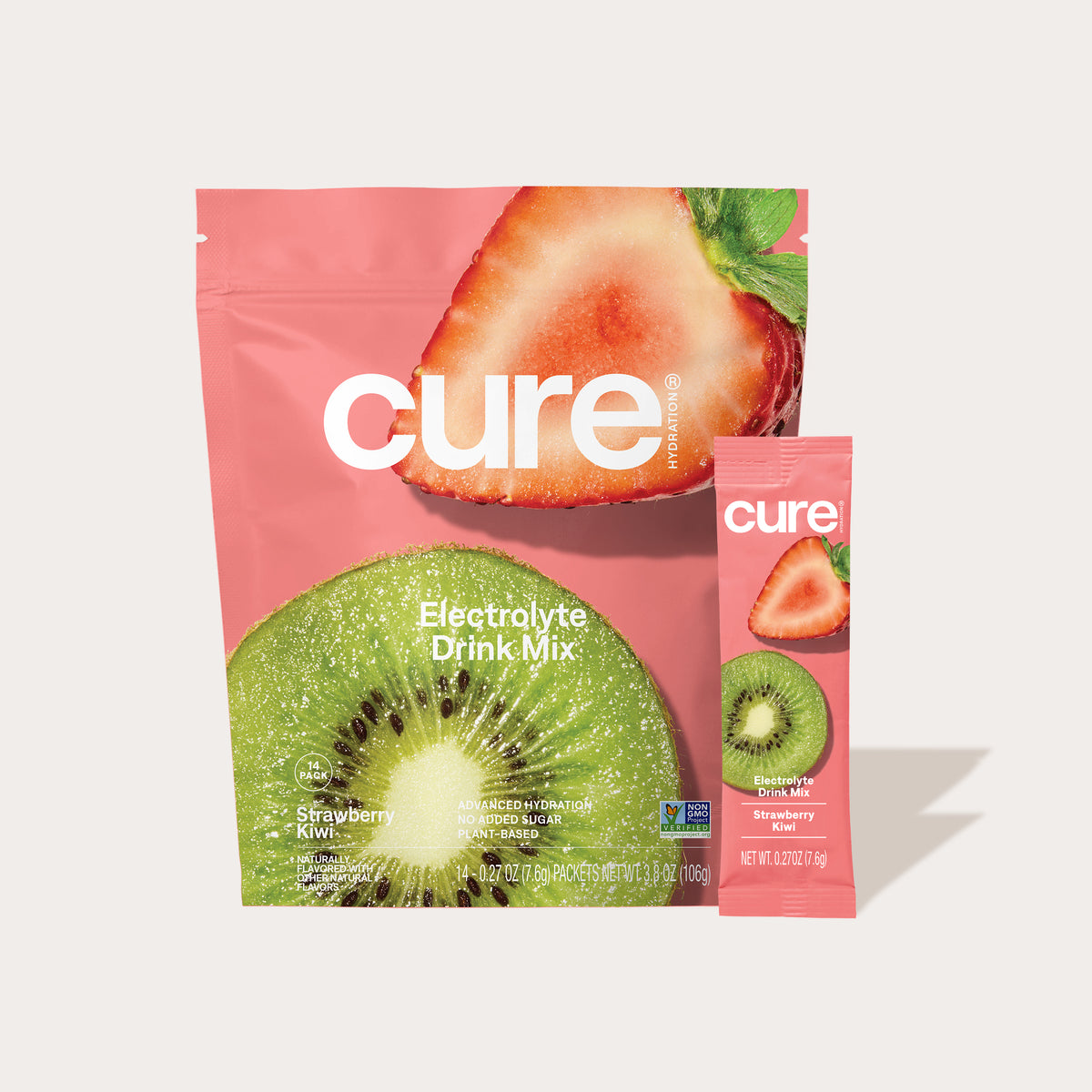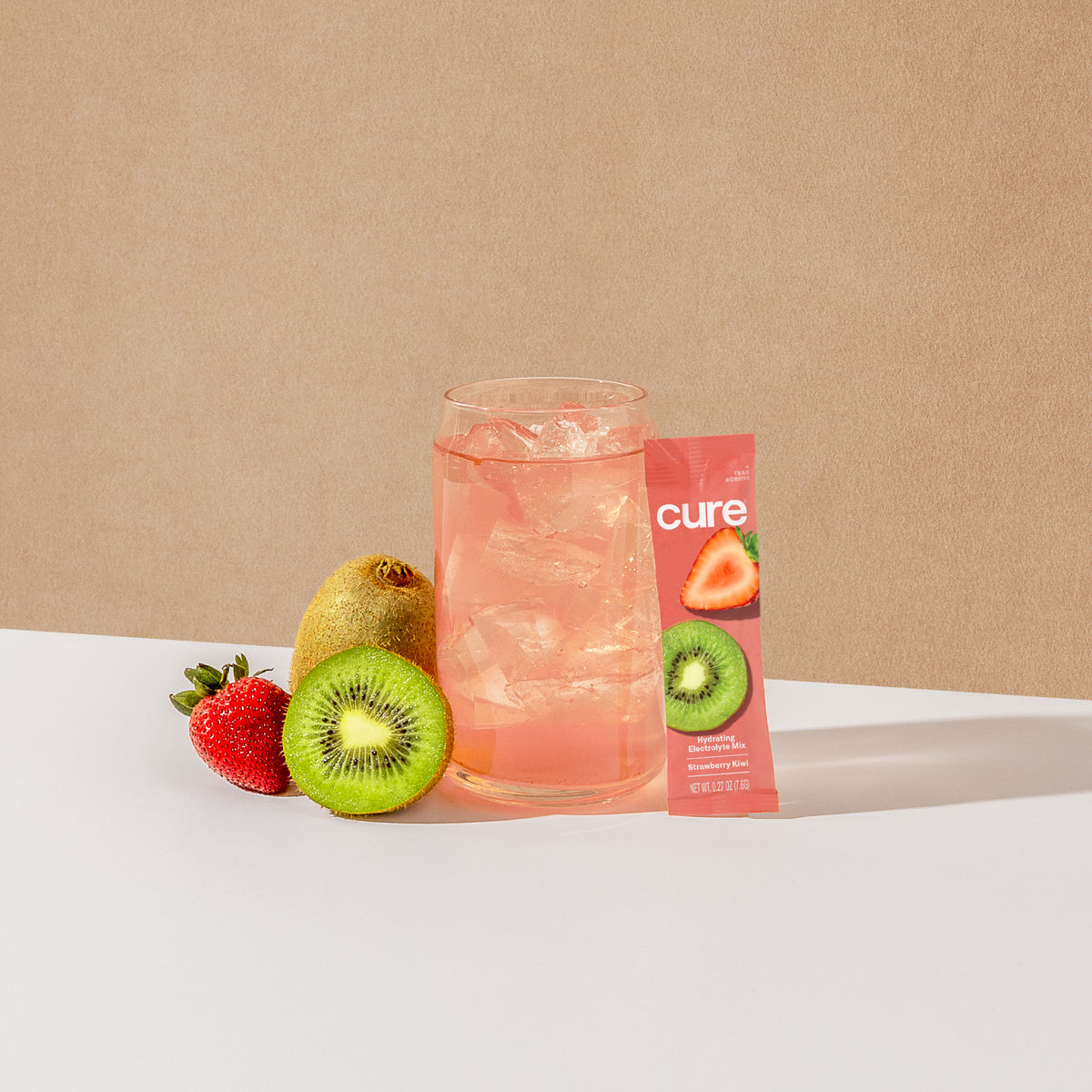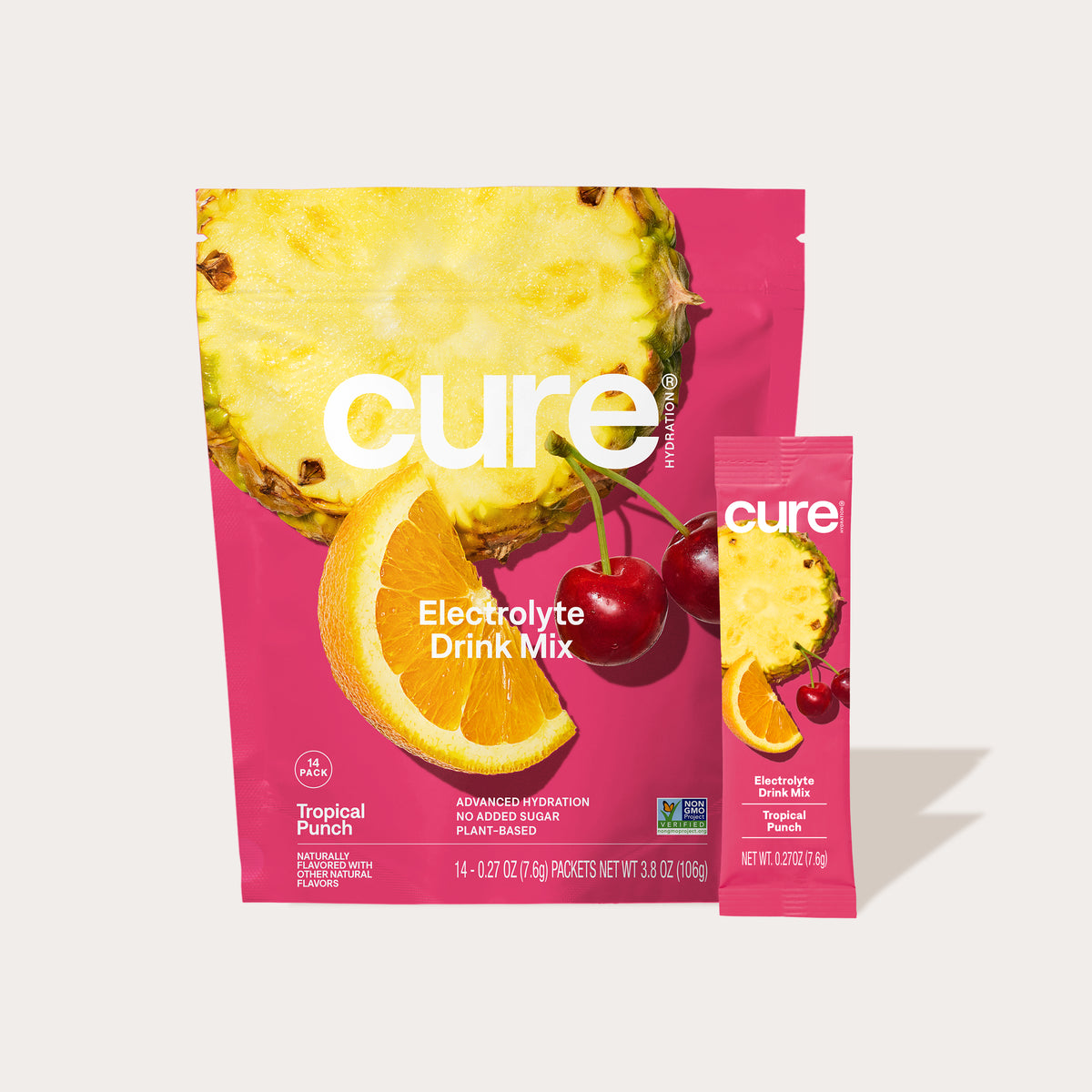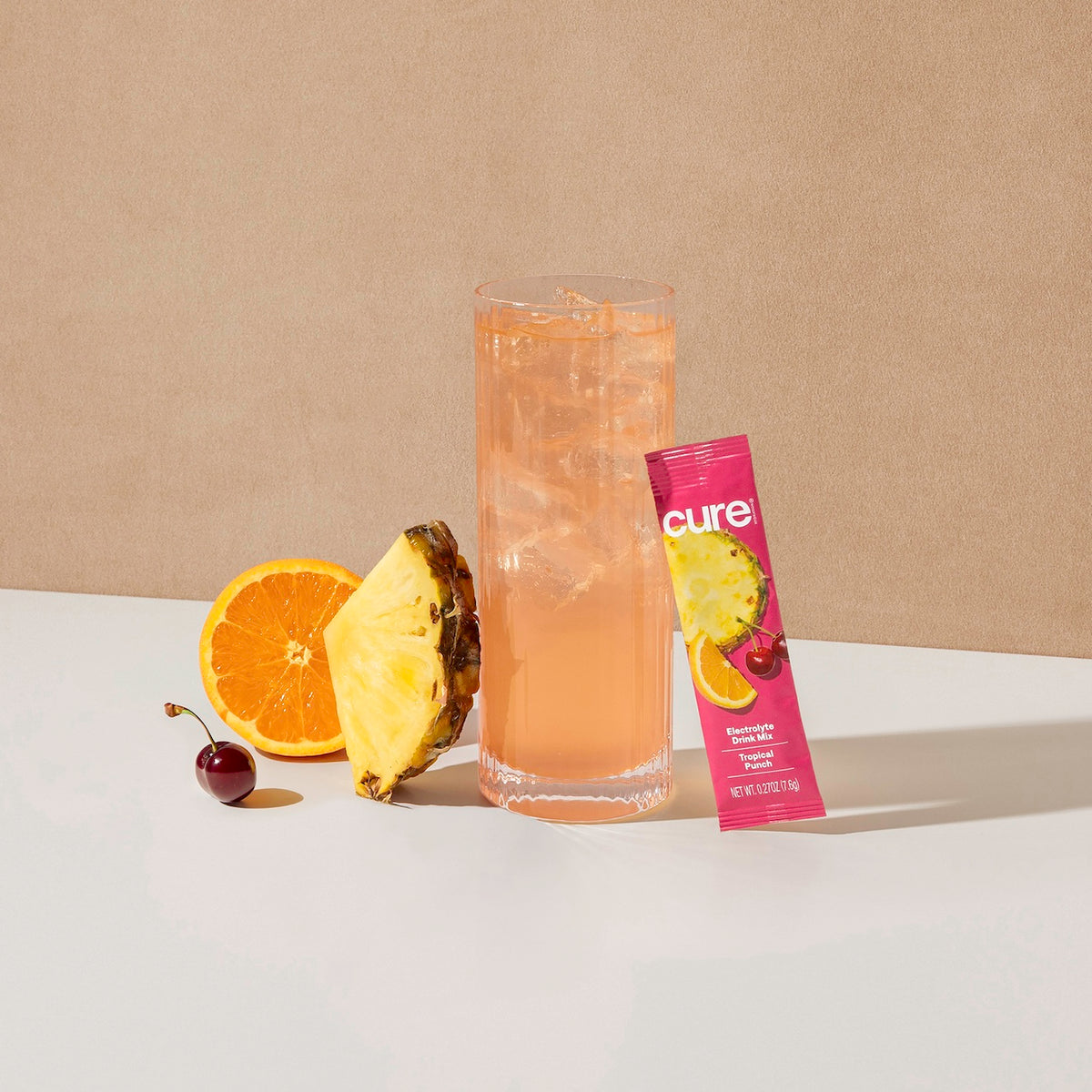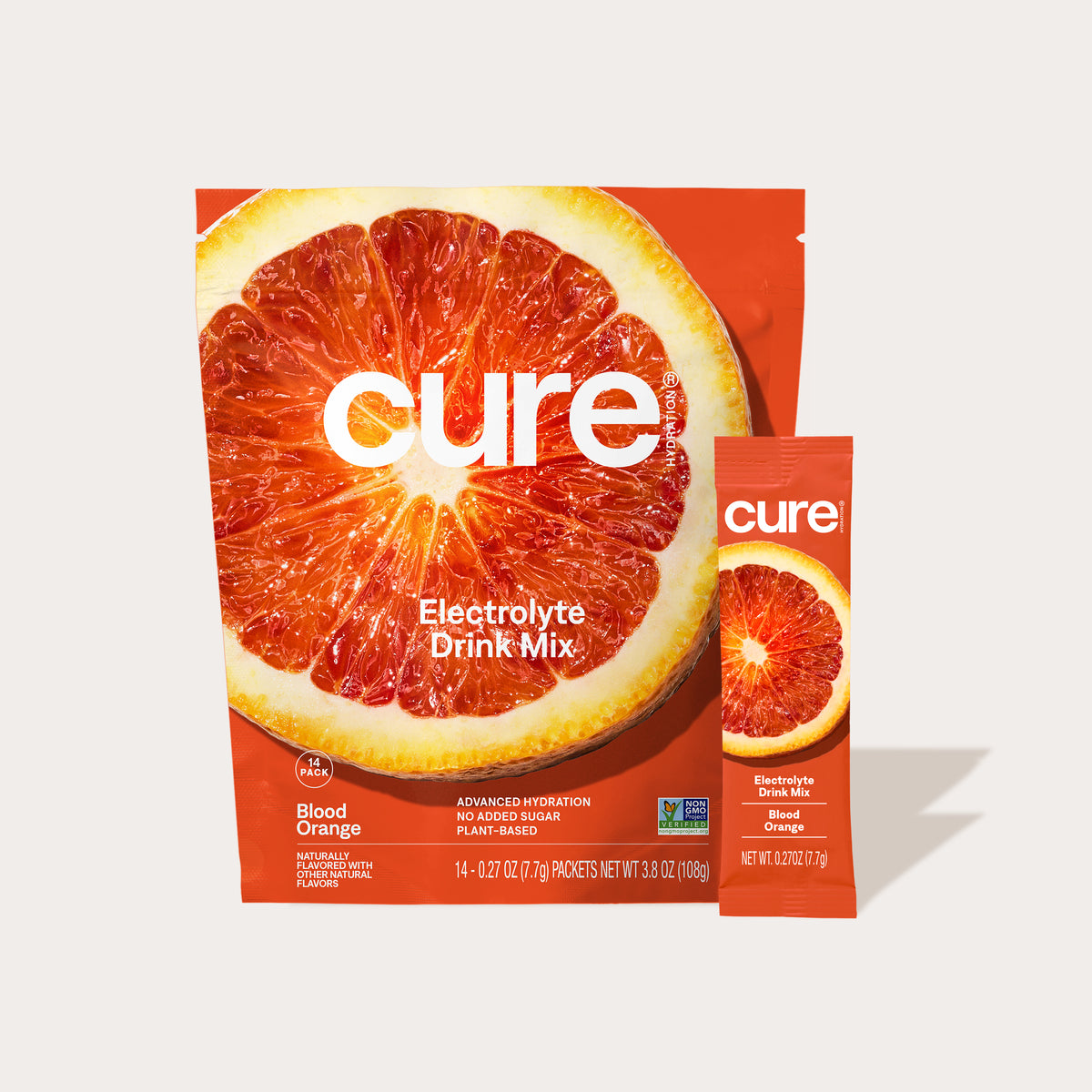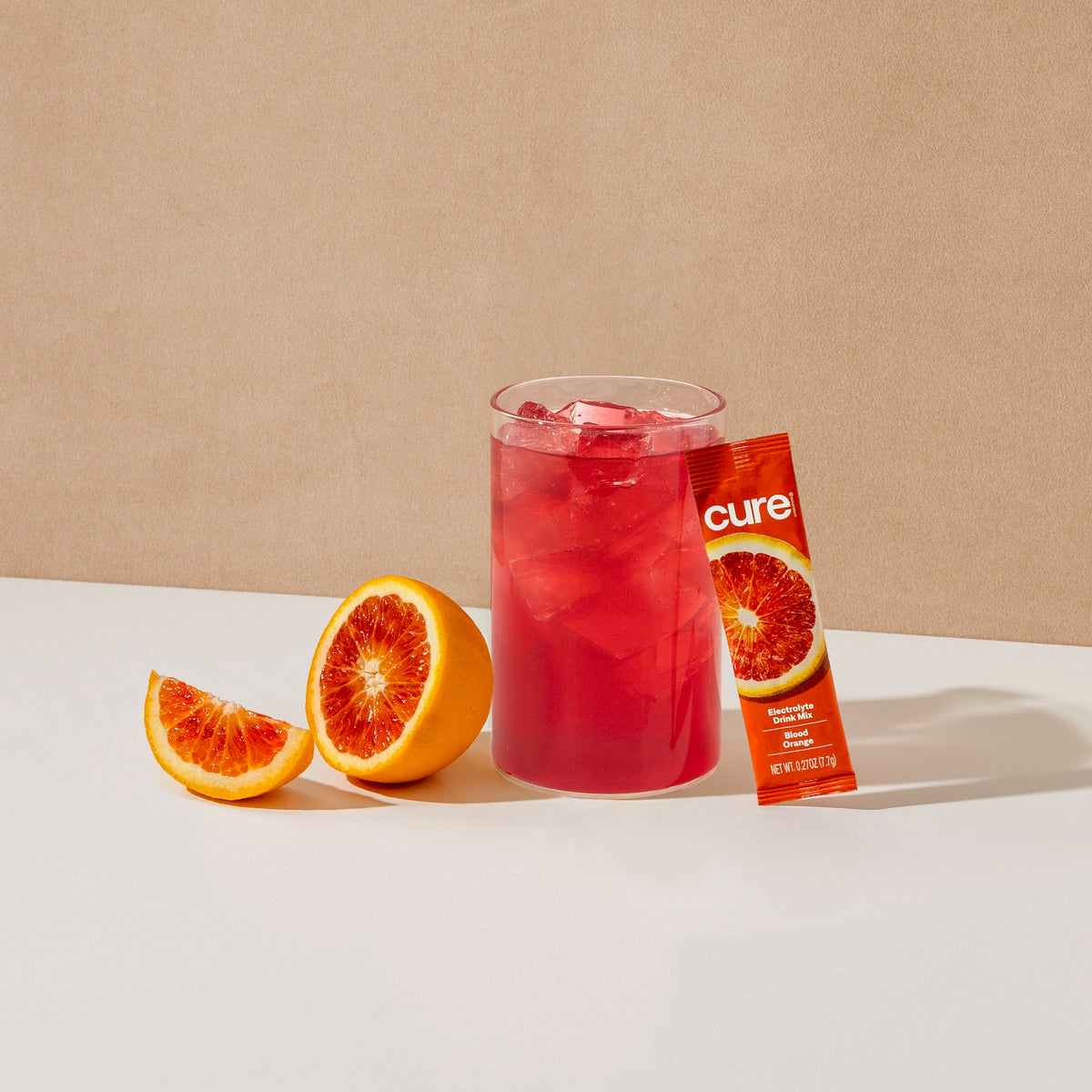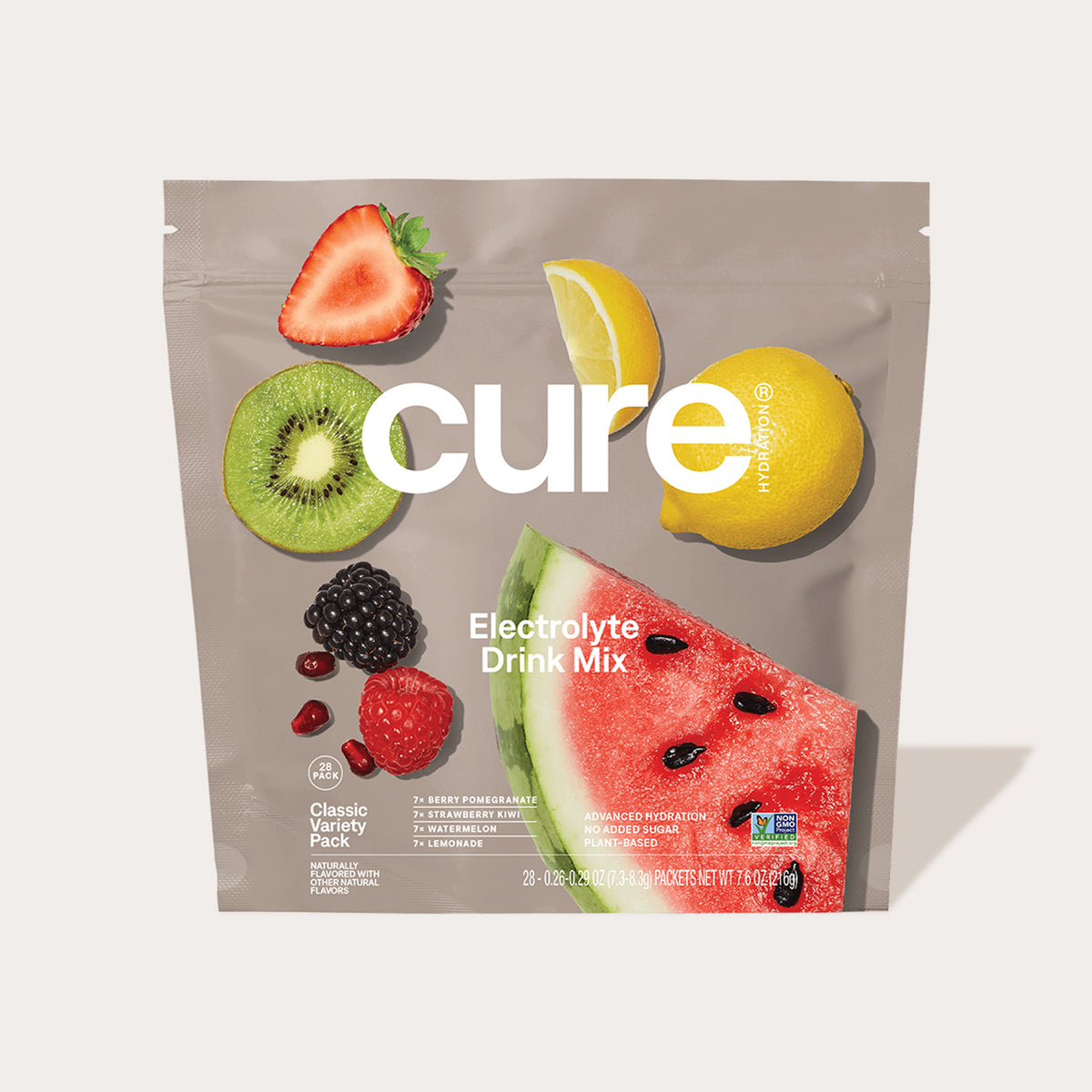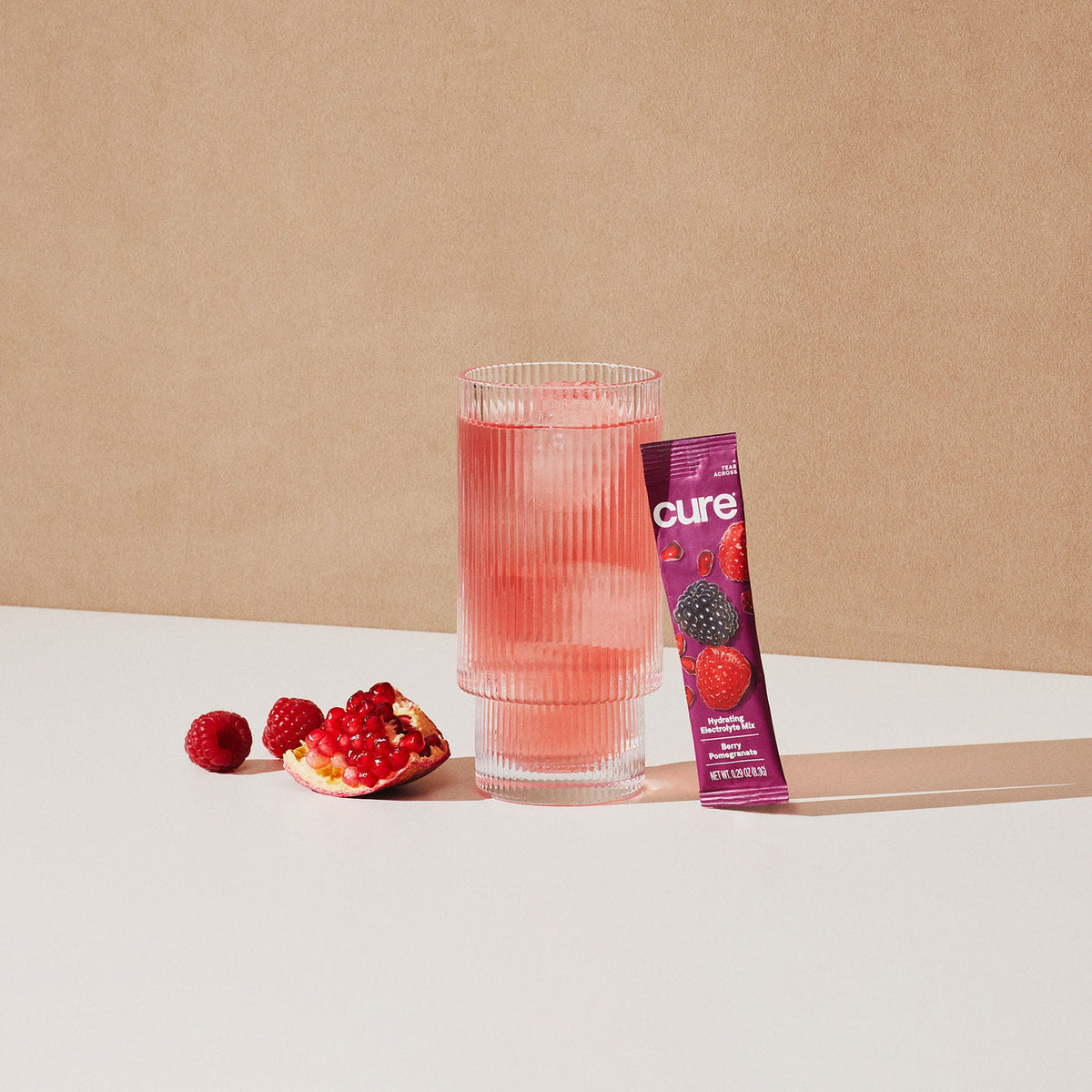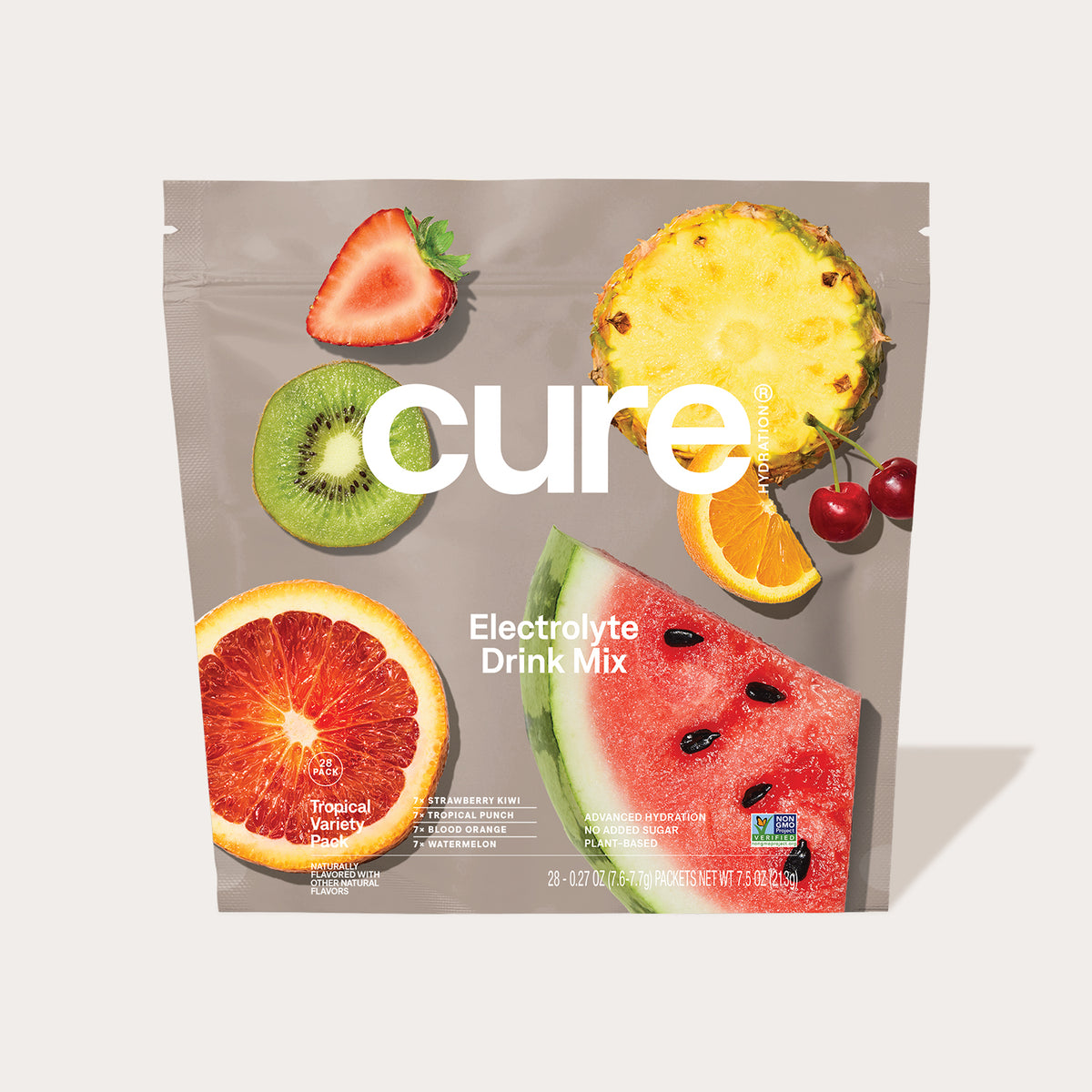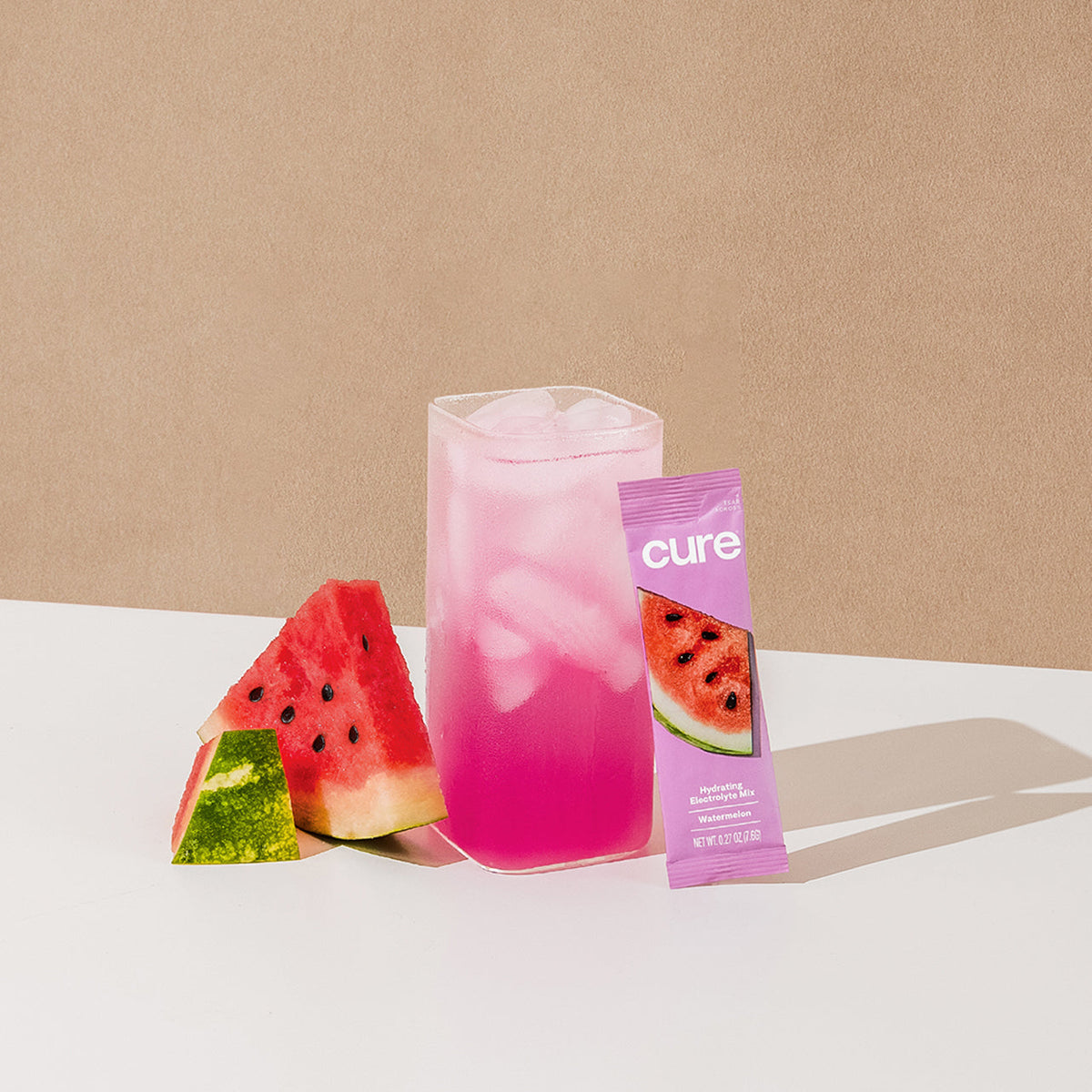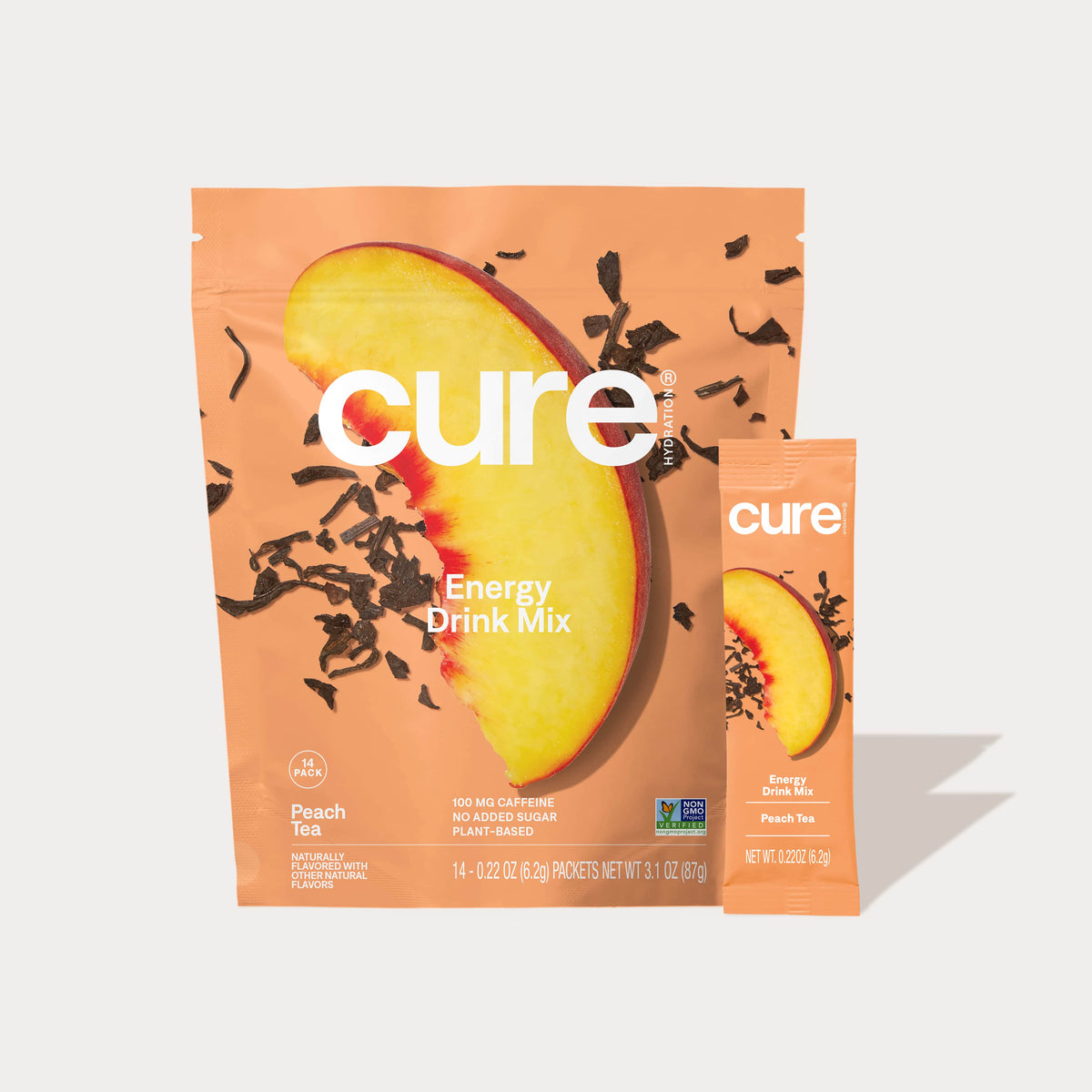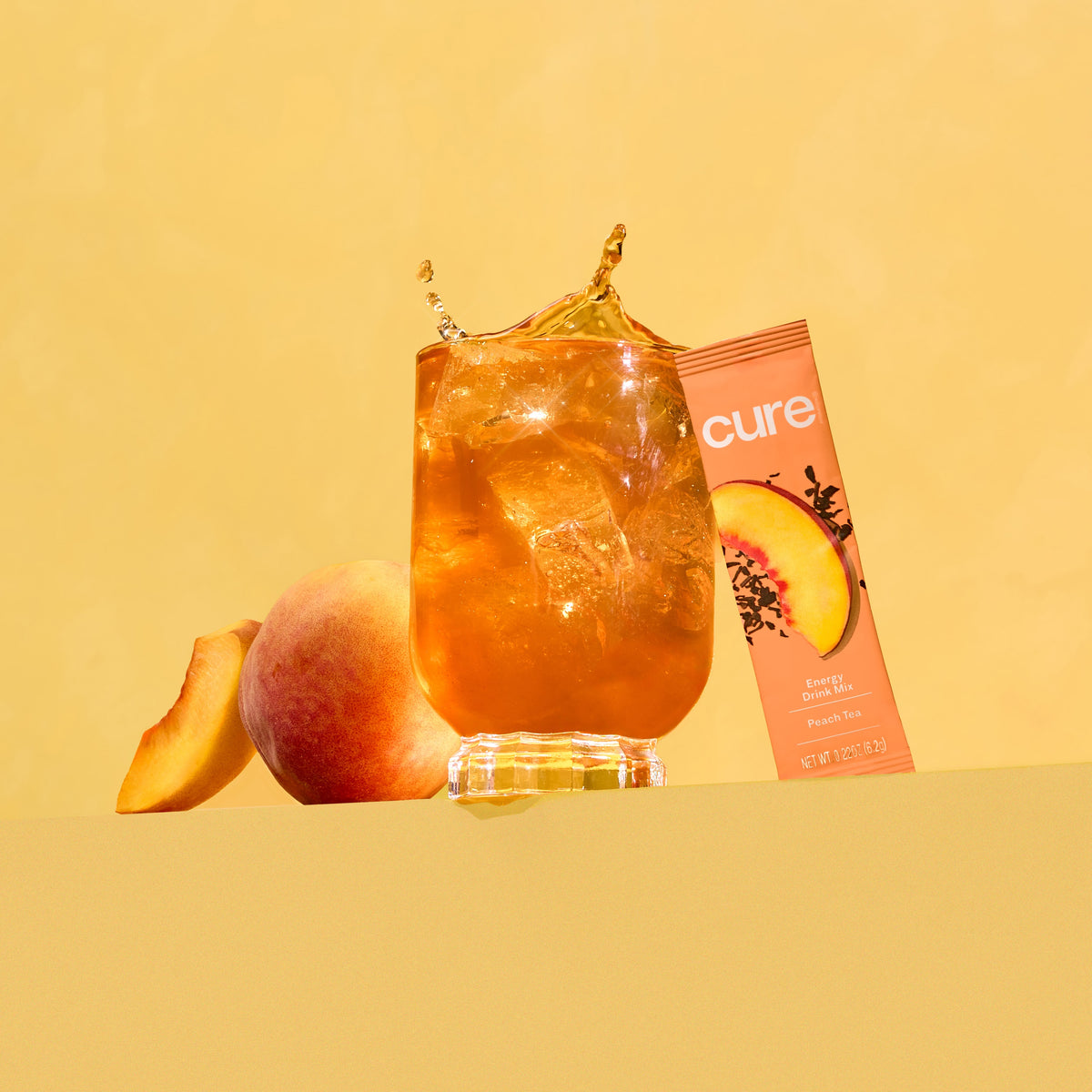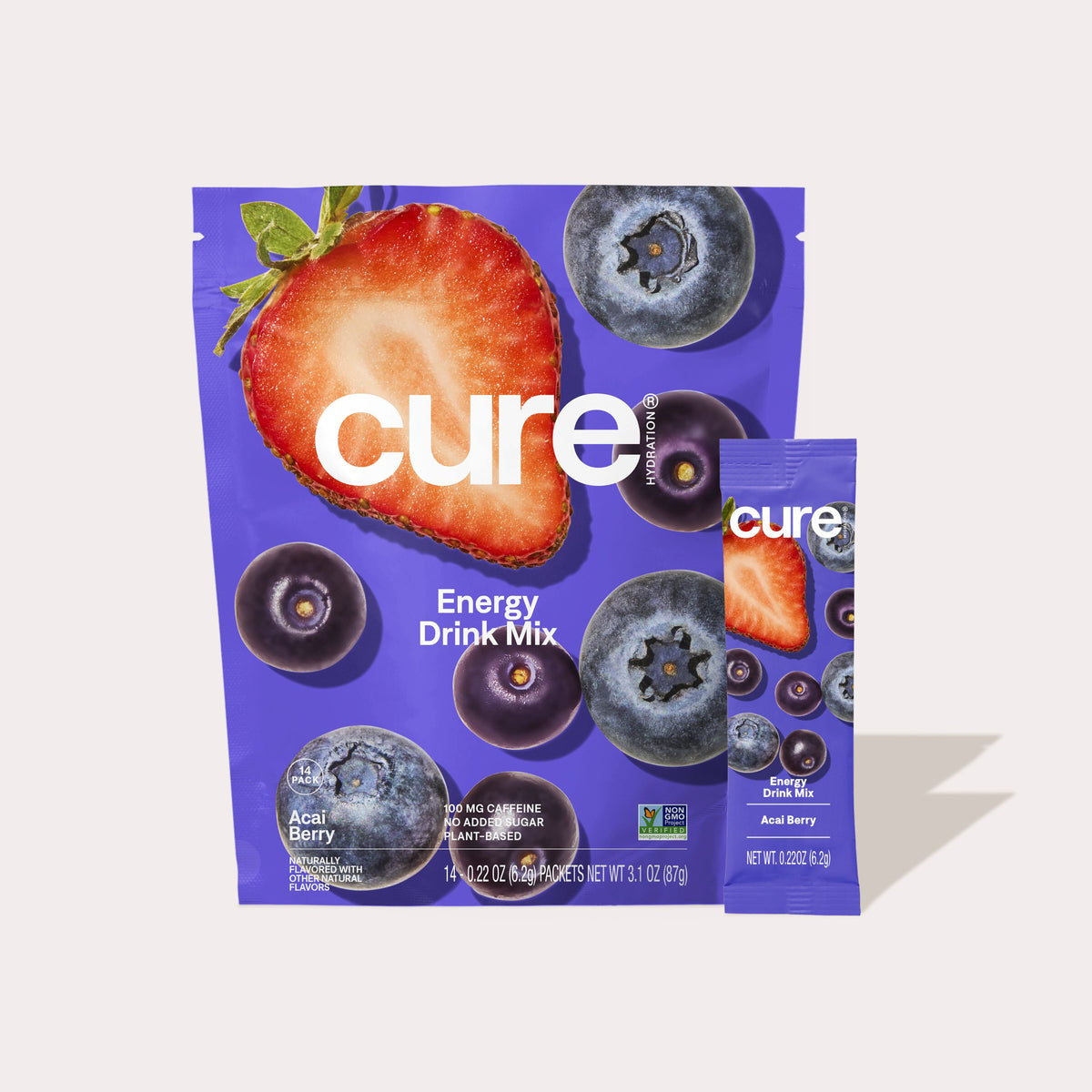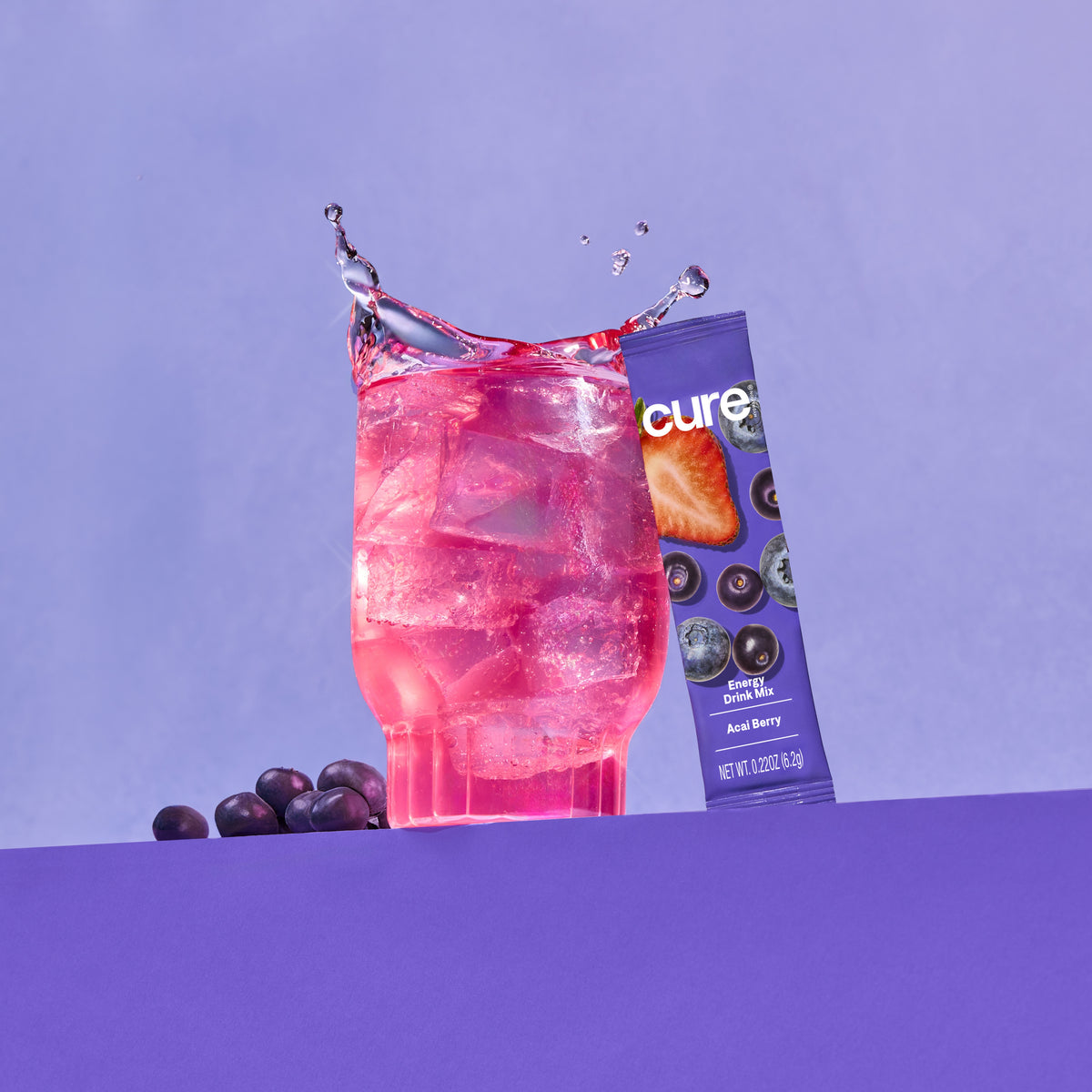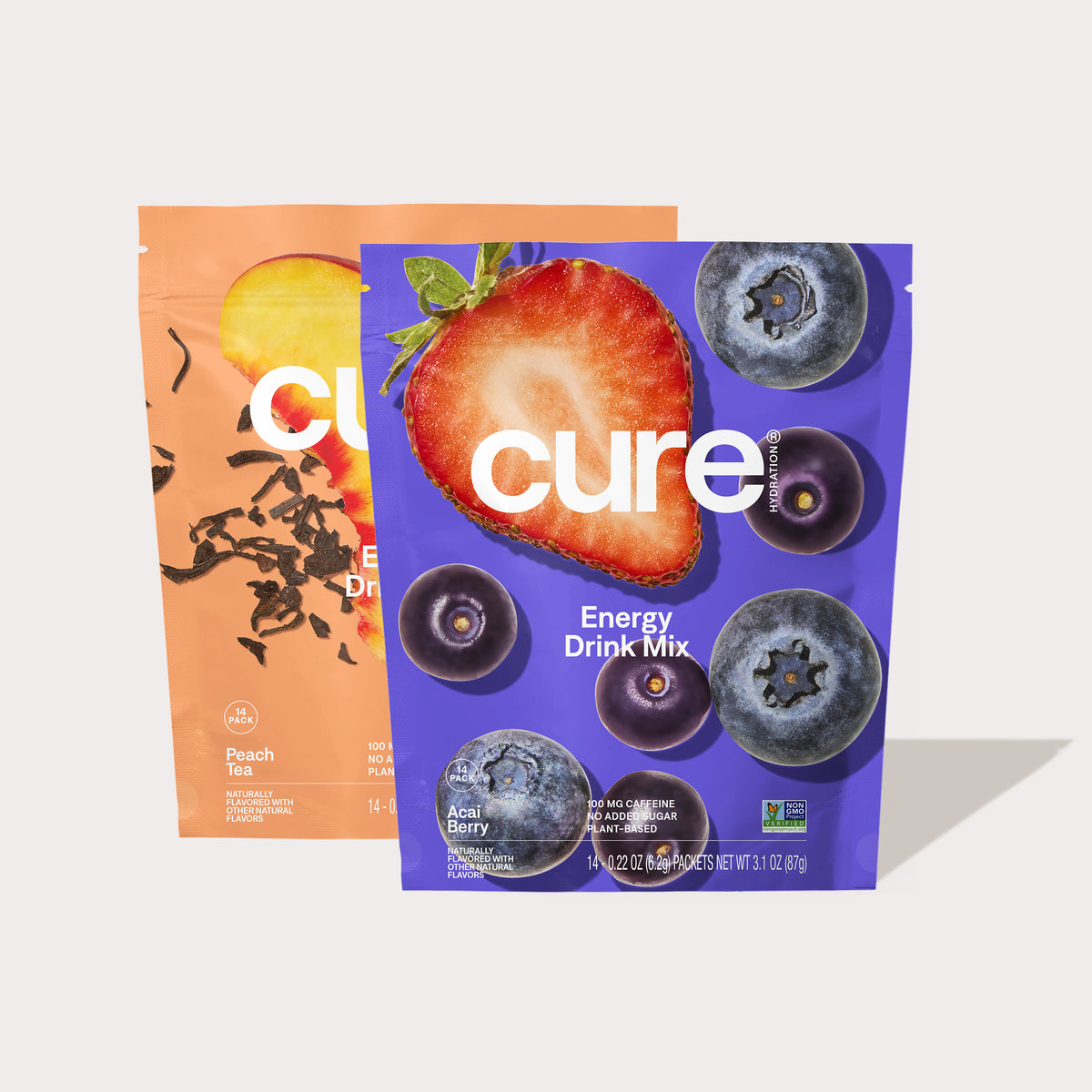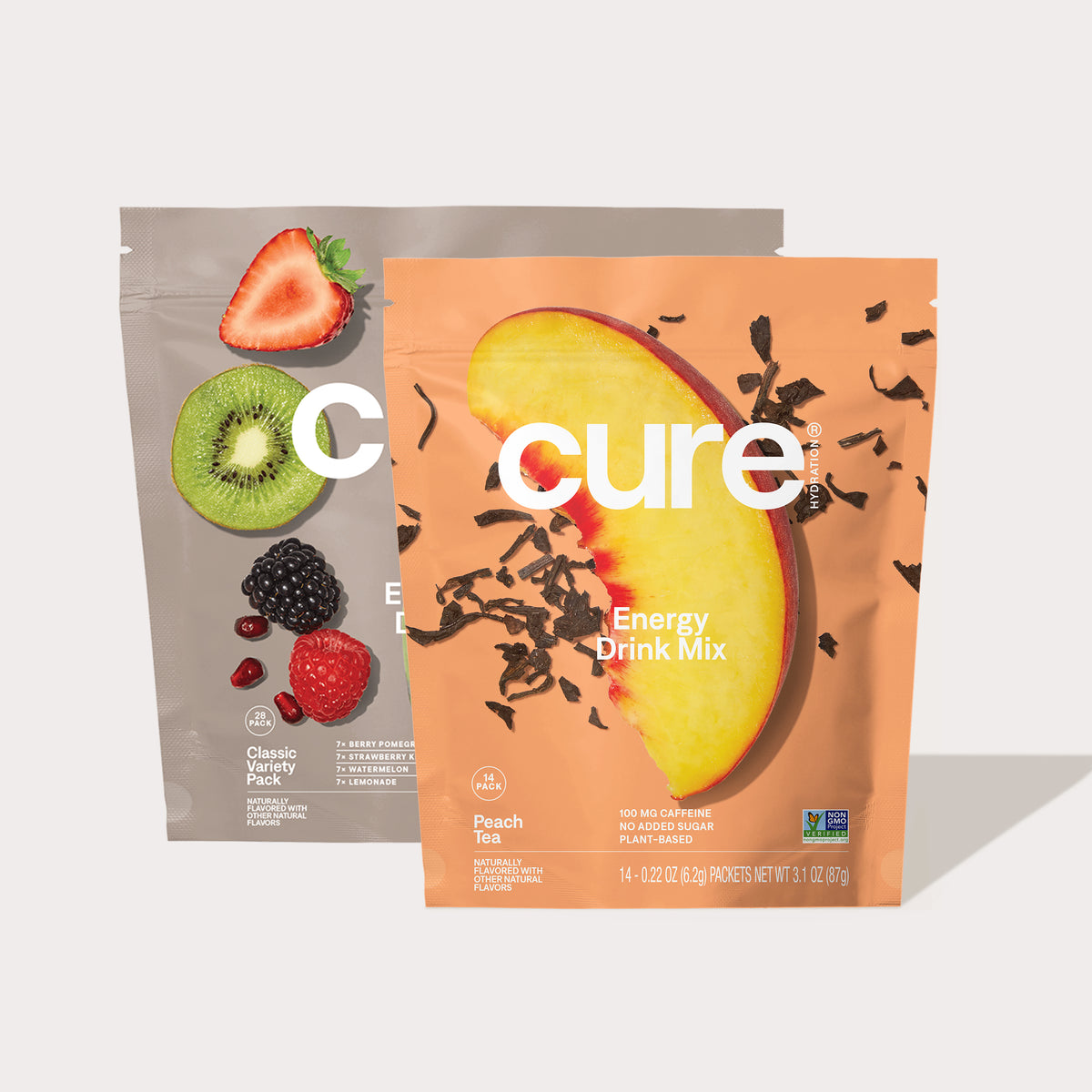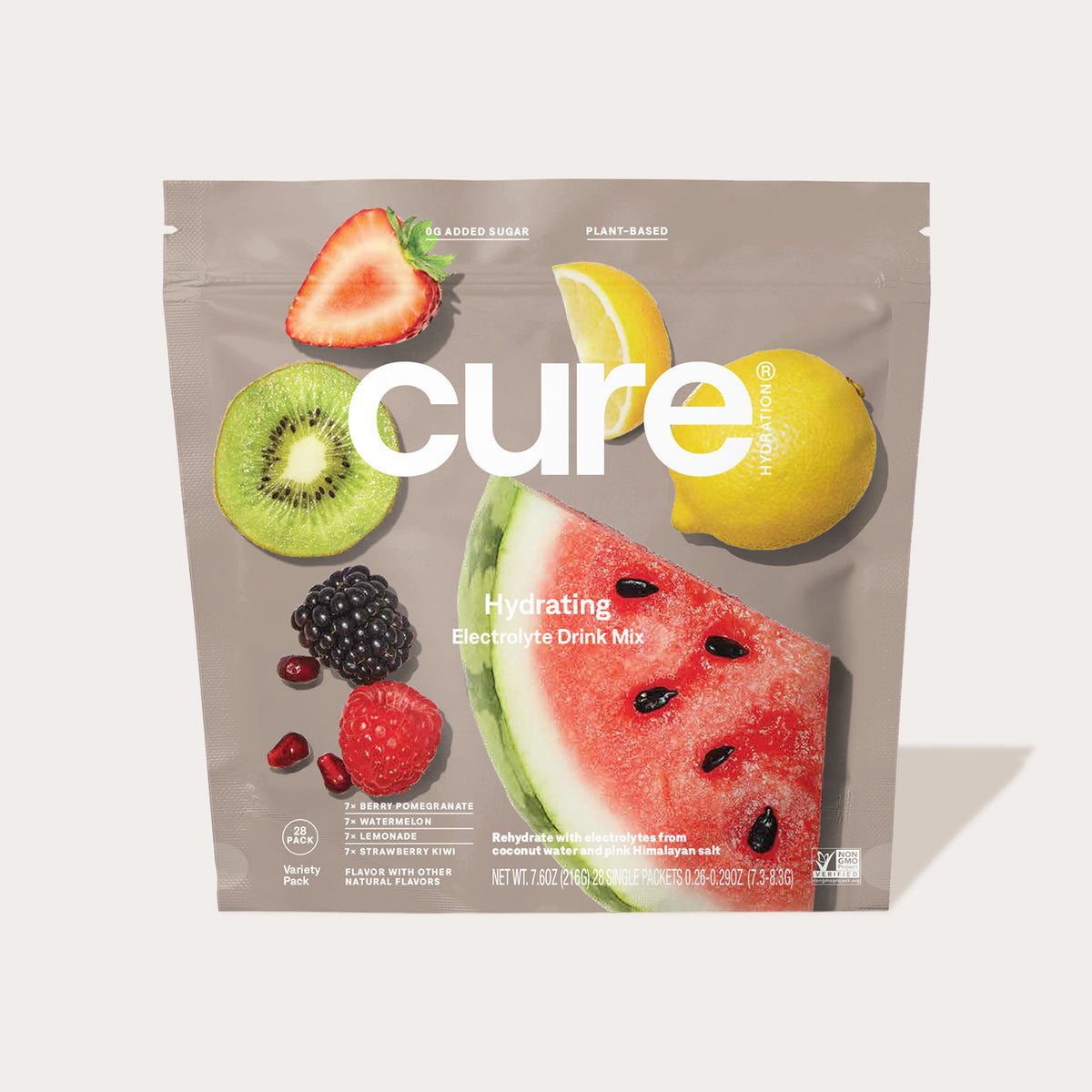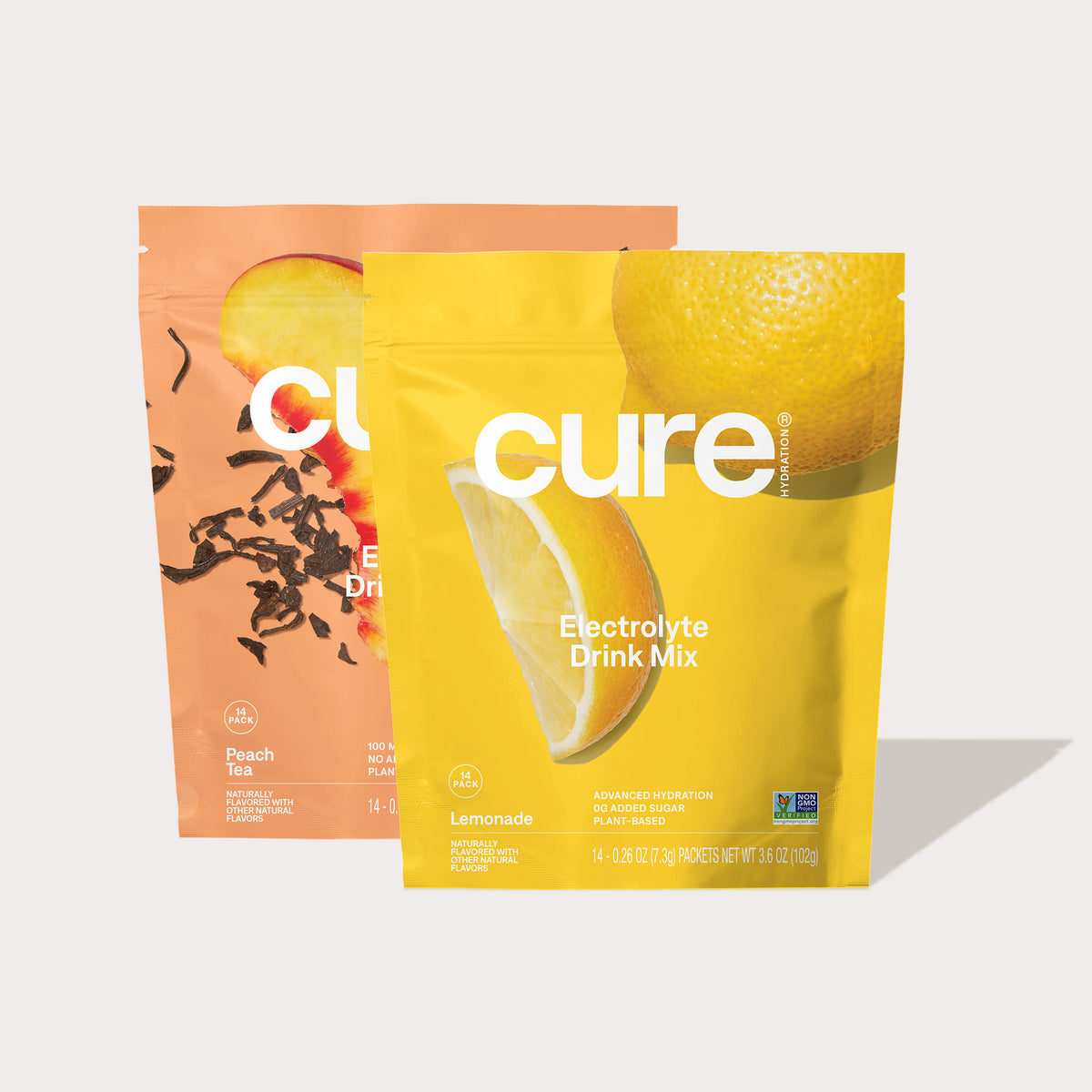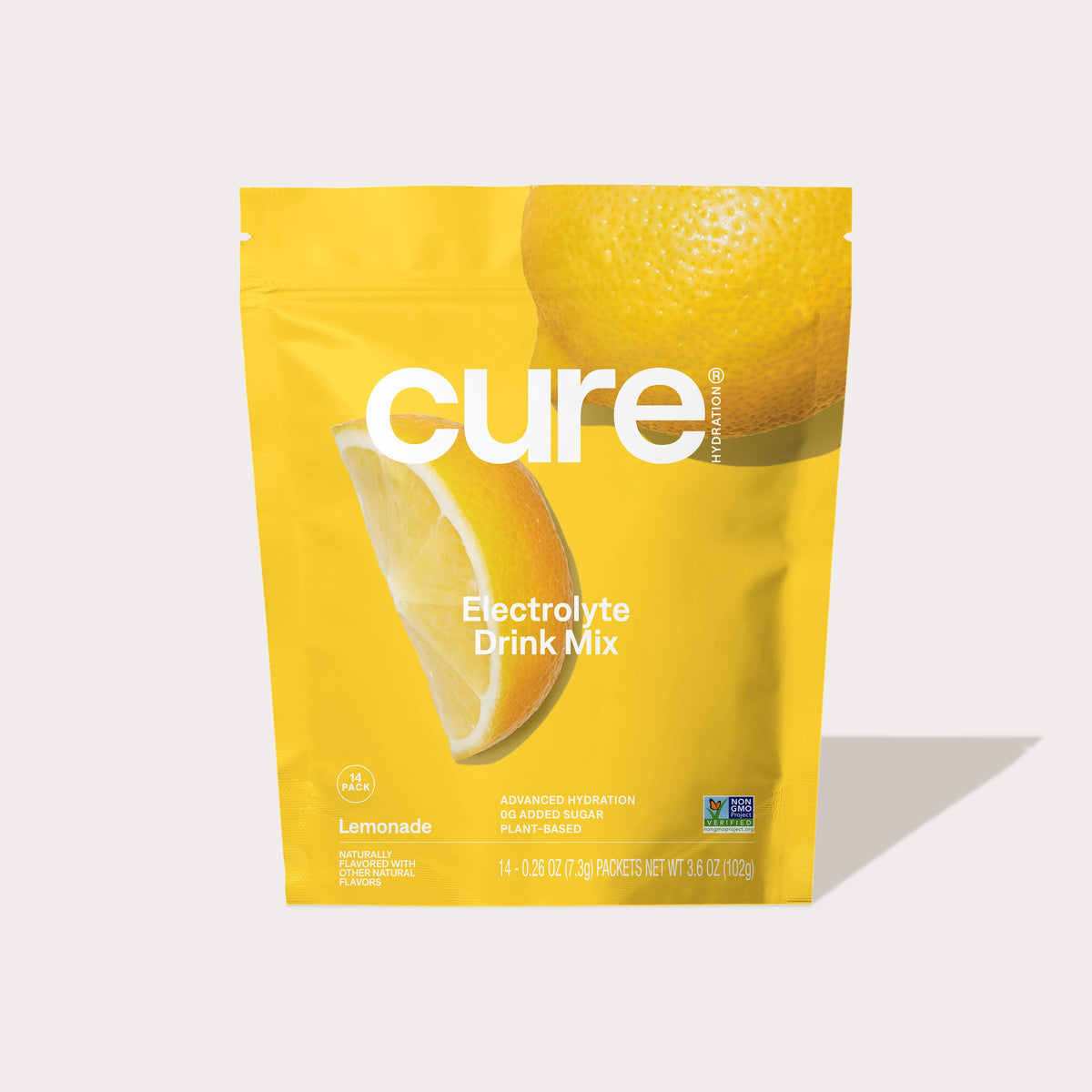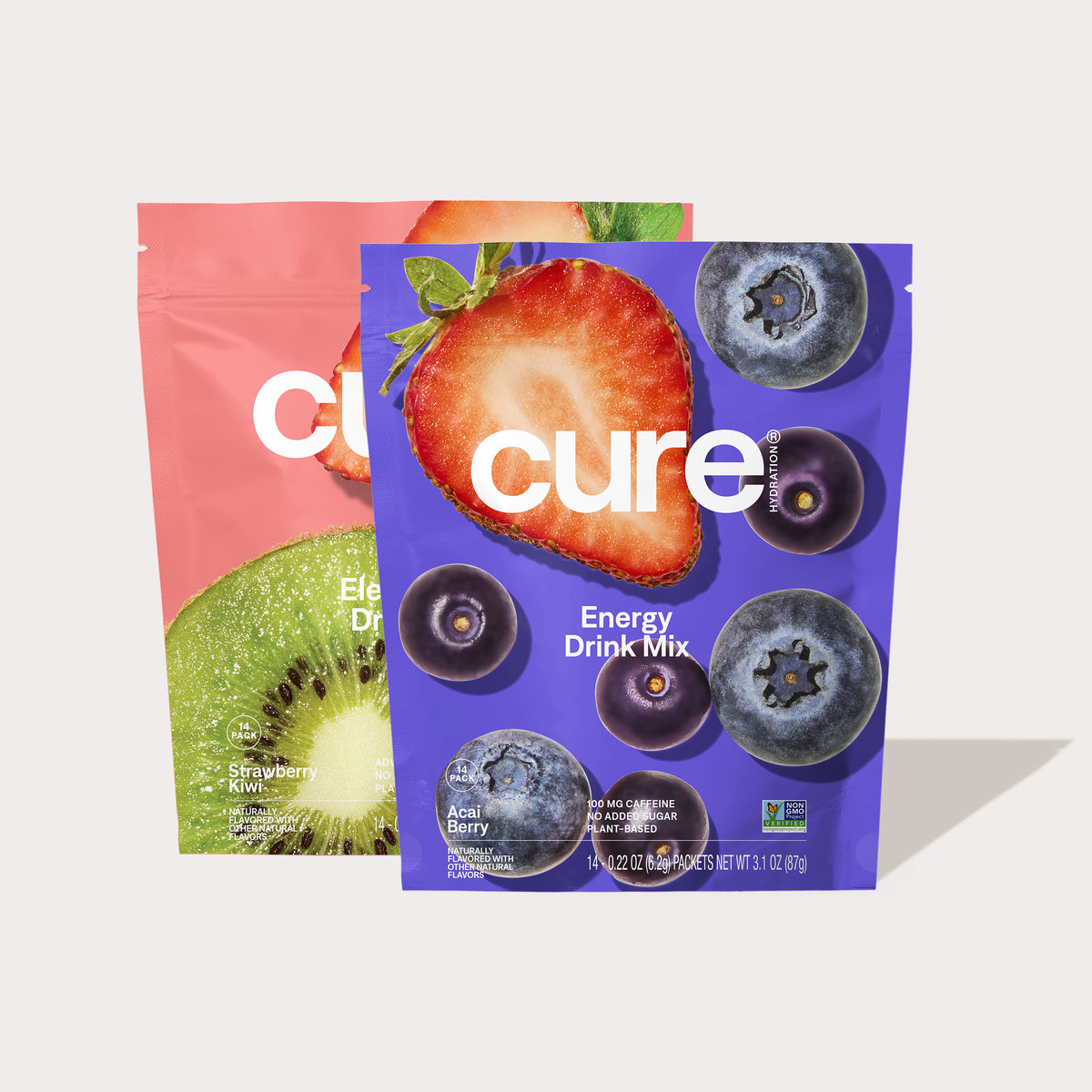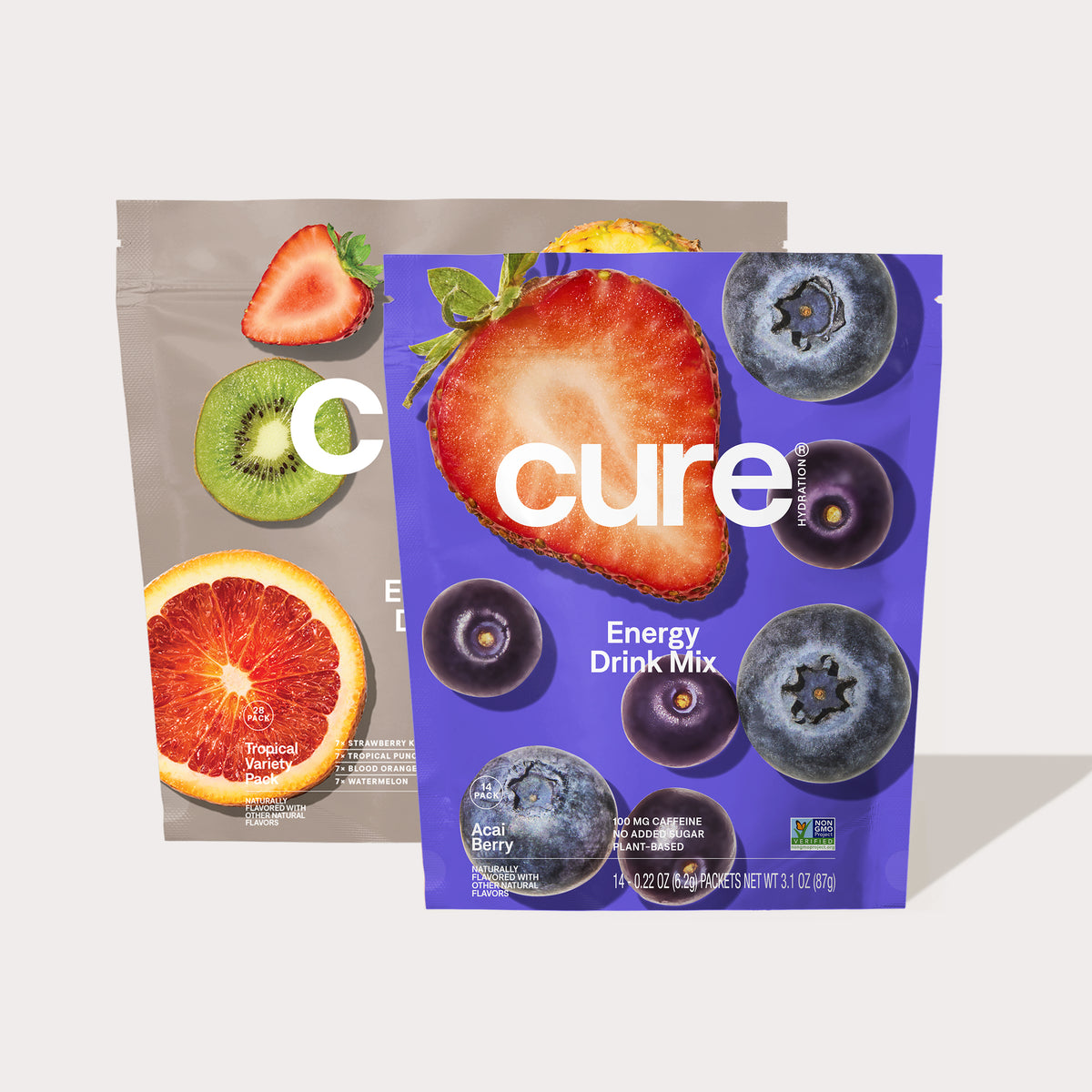In this article:
- What is IBS?
- The Danger of Dehydration?
- How To Stay Hydrated When Your IBS Flares Up
- Foods/Drinks That Trigger IBS Flare Ups

If you suffer from IBS—you’re not alone! Between 10 percent to 15 percent of Americans experience irritable bowel syndrome (IBS) symptoms. Interestingly enough, this syndrome affects more women than men. Depending on the individual, IBS can range from minor to crippling symptoms.
However, all IBS symptoms (large or small) can be disruptive to daily life and require some sort of lifestyle alteration.
For example, IBS patients are more susceptible to dehydration than the average person, and they need to drink an adequate amount of fluids to replenish their electrolytes and avoid worsened symptoms. In this article, we’re discussing how IBS and dehydration go hand-in-hand, as well as the daily importance of replenishing your electrolytes.
Taking care of ourselves is more important than ever. But when it comes to trying to take the best care of ourselves, the path forward isn’t always clear. Cure Hydration will help you make the right choice when it comes to your overall wellness.
What is IBS?
Irritable Bowel Syndrome (IBS) is a common disorder that affects the large intestine. Symptoms include cramping, abdominal pain, bloating, gas, and diarrhea or constipation. IBS is a chronic condition that needs to be managed over time. Few people with IBS have severe signs and symptoms.
Some can control their symptoms by altering their diet and making lifestyle changes, and improving their gut health through exercising and managing stress. Others may need therapy or medication.
Symptoms of IBS aren’t always persistent, and most of the time they will subside after you have a bowel movement. However, some people do have continuous symptoms. It is common for people with IBS to experience episodes of both constipation and diarrhea. These are two different types of IBS, and they’re known as IBS-C and IBS-D.
IBS-C
Irritable bowel syndrome with constipation (IBS-C) is a chronic gastrointestinal disorder that causes frequent bloating, abdominal pain, and infrequent stools that are also hard to pass. People with IBS-C may need extra water to help the stool move through the intestines.
In fact, dehydration is one of the most common causes of constipation. Let’s get technical:
- Constipation occurs when the stool in your colon gets dehydrated. Water is withdrawn from the large intestine to hydrate the body. When there is an insufficient amount of water available, the stool becomes dry, hard and difficult to move through the colon.
Increasing water content inside the gut can help soften stools and stimulate bowel movements. Increasing fluid and electrolyte intake may help relieve constipation. Drinking a mixture of lemon and water may help relieve constipation in some people.
If you're looking for a simple way to ease chronic constipation, drink plenty of fluids every day. Staying well-hydrated can be a key part of your plan to "get things moving" again.
Water is important for your digestion. It keeps the food you eat moving through your intestines, and it keeps your intestines smooth and flexible, too. When your body is properly hydrated, less water will be withdrawn from the colon. This will keep your stool soft and easy to pass.

IBS-D
Irritable bowel syndrome with diarrhea (IBS-D) is a chronic gastrointestinal disorder that causes increased diarrhea, belly pain, and frequent bowel movements. With IBS-D, your stool might be loose, though not always. You also might have sudden urges to use the bathroom.
People with IBS-D may experience dehydration from frequent bouts of diarrhea and may need to drink extra fluids and electrolytes to keep their bodies hydrated. Diarrhea can cause a tremendous loss of water and electrolytes in a short amount of time. Electrolyte-infused drinks can be helpful in replenishing your electrolytes quickly and helping you recover.
You may be in danger of dehydration if you are experiencing more bowel movements than usual, and if the stools are less formed and more watery than usual. It is recommended to stay clear from sugary drinks, which can make diarrhea worse.
The Danger of Dehydration?
Dehydration is a condition caused by the loss of too much fluid from the body. It happens when you are losing more fluids than you are taking in, and your body does not have enough fluids to work properly.
By the time you feel thirsty, your body has already lost around 2-3% of its water content. Dehydration can cause multiple problems in the body. Two of the first signs of dehydration are a decline in mental performance and in physical coordination. Mild dehydration can also drain your energy, making you feel tired.
If you suffer from IBS, you could be more susceptible to dehydration because of these symptoms:
- Diarrhea
- Excessive Sweating
- Not Drinking Enough
The symptoms of dehydration include:
- Headaches
- Dry Skin
- Dry Mouth
- Fatigue
- Dizziness

How To Stay Hydrated When Your IBS Flares Up
When you are drinking fluids, ensure that you do not drink something that is going to leave you thirstier, like caffeine or alcohol. These fluids can over stimulate your intestines and cause diarrhea. The best form of hydration is adding the essential electrolytes to your water which can effectively flushes out your system.
When you experience diarrhea, your body is even more susceptible to dehydration, especially in young children. The American Academy of Pediatrics recommends drinking electrolyte-enhanced beverages at the first signs of illness to decrease chances of dehydration.
Although electrolyte drinks are effective in keeping you hydrated, it is important to be cautious of which electrolyte drinks you are consuming. For example, many of the fluorescent-colored sports drinks you see on the shelves at the grocery store are high in sugar and full of artificial flavoring can worsen symptoms such as diarrhea.
The key to preventing dehydration is making sure you get enough fluids. Make sure you:
- Drink enough water every day. Each person’s needs are different, so ask your health care provider how much you should be drinking each day.
- Avoid drinks that are high in sugar and caffeine
- Consume extra electrolytes if you are losing them fast.
Foods/Drinks That Trigger IBS Flare Ups
Many people have worse IBS symptoms when they eat or drink certain foods or beverages, including dairy products, certain carbonated drinks, beans, fried food, or cabbage.
In order to prevent dehydration and IBS flare ups, try to steer clear of these foods and drinks:
Milk/Dairy
Milk is high in fat, which can increase your chances of diarrhea. Try switching to low fat or nonfat dairy to reduce your symptoms.
Additionally, many people with IBS report that dairy altogether is a trigger for their symptoms. If you feel that dairy products are causing you further digestive problems, consider switching to dairy alternatives such as almond or soy milk.
Carbonated, Caffeinated, and Alcoholic Beverages
These drinks are likely to leave you feeling gassy and even more dehydrated. Carbonated beverages may cause bloating and gas, which can lead to IBS flare-ups.
Moral of the story: if you have IBS and experience flare-ups after drinking carbonated water, it is worth eliminating them all together.
Beans
Beans are a good source of protein and fiber, but are known to increase bloating and gas. There are many other protein and fiber-containing food options to choose from (such as apples, eggs, almonds, or oats) that won’t cause IBS symptoms to flare up!
Fried Foods
The problem with fried foods is that they can move, undigested, through the body too quickly, which leads to diarrhea. On the flip side, undigested fried food can stay in your digestive tract too long, causing you to feel full and bloated.
Certain Vegetables
Broccoli, cauliflower, cabbage, and Brussels sprouts tend to cause upset stomachs for patients with IBS. Too much fiber, especially the kind you get in the skin of these vegetables, can quickly cause an uproar in your gastrointestinal tract.
To Sum it Up
IBS symptoms can be debilitating at times, or just plain inconvenient. Staying hydrated with electrolyte-infused beverages can be a preventative and proactive measure to control your IBS symptoms.
Our products in particular have plant-based electrolytes in each pack that help you rebalance and hydrate more effectively than water alone. Incorporate our daily electrolyte mix in your wellness routine to help prevent and recover from your IBS symptoms and move on with your day.
Sources:
Dehydration and diarrhea | NCBI
Irritable bowel syndrome - Symptoms and causes | Mayo Clinic

